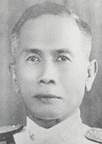
P. Pibulsongkram
Piasi, Jackson (b. 1955), justice and legal affairs minister of Solomon Islands (1994). He was also minister of lands and housing (1997-2000).
Piatkowski, Jan (b. Oct. 4, 1935, Gnieszowice, Poland - d. July 22, 2016), justice minister and prosecutor-general of Poland (1993).
Piazza Tangüis, Walter (b. Feb. 22, 1924, Lima, Peru - d. May 7, 2015), economy and finance minister of Peru (1977).
Pibulsongkram, Nitya (b. June 30, 1941, Bangkok, Thailand - d. May 24, 2014, Bangkok), foreign minister of Thailand (2006-08). He was also ambassador to the United States (1996-2000).
 P. Pibulsongkram |
Picado Michalski, Teodoro (b. Jan. 10, 1900, San José, Costa Rica - d. June 1, 1960, Managua, Nicaragua), president of Costa Rica (1944-48). He was also minister of education (1932-36) and president of Congress (1941-44).
Picanon, Édouard (b. Sept. 2, 1854, Chemilly, Allier, France - d. June 27, 1939), lieutenant governor of Cochinchina (1898-1901) and governor of New Caledonia (1902-05) and French Guiana (1906-07).
Picard, (Louis Joseph) Ernest (b. Dec. 24, 1821, Paris, France - d. May 13, 1877, Paris), finance minister (1870-71) and interior minister (1871) of France. He was also minister to Belgium (1871-73).
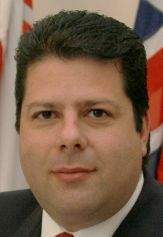 Picardo |
Piccioni, Attilio (b. June 14, 1892, Poggio Bustone, Rieti province, Italy - d. March 10, 1976, Rome, Italy), foreign minister of Italy (1954, 1962-63). He was also justice minister (1950-51).
Picco, Isabelle (F.) (b. Nov. 8, 1962, Monaco), Monegasque diplomat. She has been permanent representative to the United Nations (2009- ).
 Piccoli |
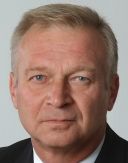 Picek |
Pichardo Pagaza, Ignacio (b. Nov. 13, 1935, Toluca, México, Mexico - d. April 14, 2020, Mexico City, Mexico), governor of México (1989-93). He was also Mexican comptroller-general (1987-88), ambassador to Spain (1994) and the Netherlands (1996-2000), president of the Institutional Revolutionary Party (1994), and minister of energy (1994-95).
Pichon, Stephen (b. Aug. 10, 1857, Arnay-le-Duc, Côte-d'Or, France - d. Sept. 18, 1933, Vers-en-Montagne, Jura, France), resident-general of Tunisia (1901-06) and foreign minister of France (1906-11, 1913, 1917-20). He was also minister to Haiti (1894-96), Brazil (1896-98), and China (1898-1901).
Pickens, Andrew (b. Dec. 13, 1779, Edgefield county, S.C. - d. July 1, 1838, Pontotock, Miss.), governor of South Carolina (1816-18).
Pickens, Francis W(ilkinson) (b. April 7, 1805, Saint Paul's Parish, S.C. - d. Jan. 25, 1869, Edgefield, S.C.), governor of South Carolina (1860-62); son of Andrew Pickens. He was also U.S. minister to Russia (1858-60).
Pickerd, Edward Thomas (b. Sept. 15, 1917 - d. Aug. 10, 2012), administrator of Norfolk Island (1972-75).
Pickering, Thomas R(eeve) (b. Nov. 5, 1931, Orange, N.J.), U.S. ambassador to the United Nations (1989-92). He was also ambassador to Jordan (1974-78), Nigeria (1981-83), El Salvador (1983-85), Israel (1985-88), India (1992-93), and Russia (1993-96).
Pickering, Timothy (b. July 17, 1745, Salem, Massachusetts - d. Jan. 29, 1829, Salem), U.S. postmaster general (1791-95), secretary of war (1795), and secretary of state (1795-1800).
Picó Cañas, Germán (b. May 25, 1905, Santiago, Chile - d. July 12, 1988, Santiago), finance minister of Chile (1947, 1951-52). He was also president of the National Press Association (1954-75).
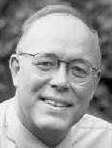 Picqué |
Picquié, Albert (Jean Georges Marie Louis) (b. Sept. 1, 1853, Saint-Gaudens, Haute-Garonne, France - d. May 10, 1917), governor of New Caledonia (1892-94), acting governor-general of French Indochina (1910), and governor-general of Madagascar (1910-14).
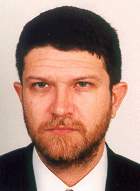 Picula |
Pidal, Pedro José Pidal Carniado, marqués de (b. Nov. 25, 1799, Villaviciosa, Asturias, Spain - d. Dec. 28, 1865, Madrid, Spain), interior minister (1844-46, 1846-47) and foreign minister (1848-49, 1849-51, 1856-57) of Spain. He was also ambassador to the Papal State (1858). He was created marqués in 1847.
Pidjot, Roch (b. Nov. 8, 1907, La Conception [now part of Mont-Dore commune], New Caledonia - d. Nov. 23, 1990, Mont-Dore), vice president of the Government Council of New Caledonia (1962-63).
Piebalgs, Andris (b. Sept. 17, 1957, Valmiera, Latvian S.S.R.), finance minister and a deputy prime minister of Latvia (1994-95). He was also minister of education (1990-93), ambassador to Estonia (1995-97) and the European Union (1998-2003), EU commissioner for energy (2004-10) and development (2010-14), and leader of the Unity party (2016-17).
Piechocinski, Janusz (b. March 15, 1960, Studzianki [now Studzianki Pancerne], Poland), Polish politician. He was a deputy prime minister and minister of economy (2012-15).
Piechocki, Stefan (b. Aug. 2, 1883, Czekanów, near Ostrów Wielkopolski, Poland - d. Aug. 19, 1968, Koscian, Poland), justice minister of Poland (1925-26).
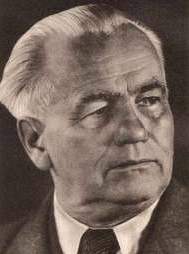 Pieck | 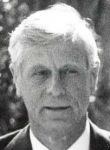 Pienaar |
Piedra (del Castillo), Enrique de la (b. June 1, 1883, Lambayeque, Peru - d. July 6, 1948, Lima, Peru), finance minister of Peru (1924-25). He was also president of the Senate (1925-27).
Piedra (del Castillo), Julio de la (b. Aug. 28, 1896, Chiclayo, Peru - d. Feb. 6, 1984, Lima, Peru), Peruvian politician; brother of Enrique de la Piedra del Castillo. He was president of the Senate (1952-54, 1963-64, 1967).
Piedra y Piedra, Carlos Manuel (b. 1895? - d. August 1988, Havana, Cuba), interim president of Cuba (1959).
Pieltaín (Jove-Huergo), Cándido (b. 1822 - d. Aug. 21, 1888, Madrid, Spain), governor of Cuba (1873).
Pieme Tutokot, Dieudonné (b. Feb. 22, 1966, Mweka, Unité Kasaïenne [now in Kasaï], Congo [Léopoldville (now Kinshasa)]), governor of Kasaï (2019- ).
Pienaar, Louis (b. June 23, 1926, Stellenbosch, South Africa - d. Nov. 5, 2012, Cape Town, South Africa), administrator-general of South West Africa (1985-90) and home affairs minister of South Africa (1992-93). He was also South African ambassador to France (1975-79) and minister of education (1990-92) and environment (1990-93).
Pieracki, Bronislaw (Wilhelm) (b. May 28, 1895, Gorlice, Austria [now in Poland] - d. [assassinated] June 15, 1934, Warsaw, Poland), deputy prime minister (1931) and interior minister (1931-34) of Poland.
 Pierantozzi |  B. Pierce |
Pierce, Benjamin (b. Dec. 25, 1757, Chelmsford, Mass. - d. April 1, 1839, Hillsboro, N.H.), governor of New Hampshire (1827-28, 1829-30).
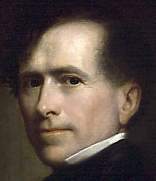 F. Pierce |
Pierce, Dame Karen (Elizabeth) (b. Sept. 23, 1959), British diplomat; knighted 2018. She has been ambassador to Afghanistan (2015-16) and the United States (2020- ) and permanent representative to the United Nations (2018-20).
Pieri, Claude (b. Jan. 21, 1922, Corte, Corse, France - d. June 4, 2002, Toulon, France), administrator-superior of the French Southern and Antarctic Lands (1982-87).
Pieris, (Peter) Mohan (Maithri) (b. Aug. 30, 1951), Sri Lankan official. He has been attorney general (2008-11), chief justice of the Supreme Court (2013-15), and permanent representative to the United Nations (2021- ).
Pierkhan, (Mohamed Afzal) Faried (b. Aug. 8, 1960), foreign minister of Suriname (1996-97). He was labour minister in 1997-99.
Pierlot, Hubert (Marie Eugène, comte) (b. Dec. 23, 1883, Cugnon, Belgium - d. Dec. 13, 1963, Uccle, Belgium), interior minister (1934-35, 1940-43), justice minister (1937, 1942), prime minister (1939-45), foreign minister (1939), and defense minister (1942-44) of Belgium. Upon the German occupation of Belgium in 1940, he left for France; he fled to Spain after the French Vichy regime broke its diplomatic relations with Belgium; and, after having been arrested, he escaped from Barcelona (October 18) via Lisbon (October 19) to arrive in London on October 25. He returned to Belgium in 1944.
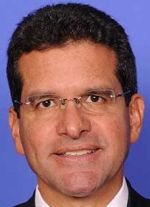 Pierluisi |
Piérola (y Villena), Carlos de (b. Nov. 2, 1852, Lima, Peru - d. Dec. 5, 1933, Lima), Peruvian politician; son of Nicolás de Piérola (1788-1857); brother of Nicolás de Piérola (1839-1913). He was president of the Chamber of Deputies (1897-99, 1900-01, 1902-03) and a presidential candidate (1915).
Piérola (y Flores del Campo), Nicolás (Fernández) de (b. Oct. 11, 1788, Camaná [now in Arequipa region], Peru - d. Jan. 23, 1857, Chorrillos, Peru), finance minister of Peru (1852-54).
Piérola (y Villena), (José) Nicolás (Baltasar Fernández) de (b. Jan. 5, 1839, Arequipa, Peru - d. June 23, 1913, Lima, Peru), finance minister (1869, 1870-71), supreme chief (1879-81), and president (1895-99) of Peru; son of the above.
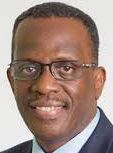 Pierre |
Pierre-Alype, (Marie) François (Julien) (b. 1886 - d. 1956), acting head of state of Syria (1926) and governor of French Somaliland (1937-38) and Guadeloupe (1938-40). He was also prefect of the départements of Charente-Inférieure (1940) and Gironde (1940-42).
Pierre-Louis, Joseph Nemours (b. Oct. 24, 1900, Cap-Haïtien, Haiti - d. April 1966, Port-au-Prince, Haiti), provisional president of Haiti (1956-57). He was also minister of justice and worship (1937-38) and president of the Supreme Court (1946-57).
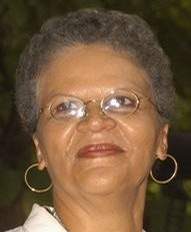 M. Pierre-Louis |
Pierrepont, Edwards, original name Munson Edwards Pierpont (b. March 4, 1817, North Haven [now New Haven], Conn. - d. March 6, 1892, New York City), U.S. attorney general (1875-76). He was also minister to the United Kingdom (1876-77).
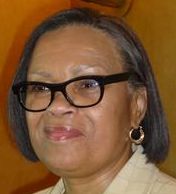 Pierrot |
Pierson, Nicolaas Gerard (b. Feb. 7, 1839, Amsterdam, Netherlands - d. Dec. 24, 1909, Heemstede, Noord-Holland, Netherlands), finance minister (1891-94, 1897-1901) and prime minister (1897-1901) of the Netherlands. He was also president of the central bank (1885-91).
Pietrewicz, Miroslaw (Piotr) (b. Jan. 2, 1941, Nowa Wies, Poland - d. May 6, 2022, Warsaw, Poland), Polish politician. He was minister-head of the Central Planning Office (1993-96), a deputy prime minister (1996-97), and minister of the treasury (1996-97).
Piétri, François (b. Aug. 10, 1882, Bastia, Corse, France - d. Aug. 18, 1966, Ajaccio, Corse), French defense minister (1932) and finance minister (1934). He was also minister of colonies (1929-30, 1930, 1933), budget (1931-32), military marine (1934-35), marine (1935-36), and merchant marine (interim, 1935) and ambassador to Spain (1940-44).
Piétri, Joseph (Marie) (b. Feb. 25, 1820, Sartène, Corse, France - d. Jan. 4, 1902, Sartène), prefect of police of Paris (1866-70); brother of Pierre Piétri. He was also prefect of the départements of Ariège (1853-55), Cher (1855-61), Hérault (1861-65), and Nord (1865-66).
Pietri (Méndez), Luis Gerónimo (b. March 10, 1892, Río Caribe, Sucre, Venezuela - d. July 14, 1969, Caracas, Venezuela), interior minister of Venezuela (1938-41). He was also minister of labour and communications (1937-38), governor of the Distrito Federal (1941-42), and ambassador to Colombia (1950-53).
Piétri, Pierre (Marie) (b. May 23, 1809, Sartène, Corse, France - d. Feb. 28, 1864, Paris, France), prefect of police of Paris (1852-58). He was also prefect of the départements of Ariège (1849-51) and Haute-Garonne (1851-52).
Piette, (Louis Eugène) Maurice (b. May 16, 1871, Vervins, Aisne, France - d. 1953), minister of state of Monaco (1923-32). He was also prefect of the French département of Meuse (1918-19).
 Piggott |
Pignon, Léon (Marie Adolphe Pascal) (b. April 19, 1908 - d. April 4, 1976), commissioner of Cambodia (1947-48) and high commissioner of French Indochina (1948-50).
Pihl, Jüri (b. March 17, 1954, Kuressaare, Estonian S.S.R. - d. Feb. 3, 2019), interior minister of Estonia (2007-09). He was also director of the Internal Security Service (1993-2003), prosecutor-general (2003-05), and chairman of the Social Democratic Party (2009-10).
Piip, Ants (b. Feb. 28, 1884, Tuhalaane municipality, Russia [now in Estonia] - d. Oct. 1, 1942, Molotov oblast, Russian S.F.S.R. [now in Perm kray, Russia]), foreign minister (1919, 1921-22, 1925-26, 1933, 1939-42 [from 1940 in exile government]), prime minister (1920), and state elder and minister of war (1920-21) of Estonia. He was also diplomatic representative in the United Kingdom (1920) and minister to the United States (1923-25). He was arrested in 1941 and died the following year in a Soviet prison camp.
Pijnacker Hordijk, Cornelis (b. April 13, 1847, Drumpt, Wadenoijen municipality, Gelderland, Netherlands - d. Sept. 3, 1908, Haarlem, Netherlands), interior minister of the Netherlands (1882-83), king's commissioner of Drenthe (1885-88), and governor-general of the Netherlands East Indies (1888-93).
Pikioune, Gaetan (b. July 6, 1965), finance minister of Vanuatu (2016-20).
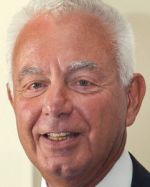 Pikrammenos |  Piks |
Piks, Rihards (b. Dec. 31, 1941, Riga, Latvia), foreign minister of Latvia (2004). He was also minister of culture (1996-97).
Piksayev, Aleksandr (Osipovich) (b. Aug. 18, 1922, Melsyany [now in Mordovia], Russia - d. Sept. 16, 2019), chairman of the Council of Ministers (1971-78) and chairman of the Presidium of the Supreme Soviet (1978-88) of the Mordovian A.S.S.R.
Piksin, Ivan (Alekseyevich) (b. 1905, Miloradovka, Samara province, Russia - d. Oct. 28, 1973, Moscow, Russian S.F.S.R.), first secretary of the Communist Party committee of the Mordovian A.S.S.R. (1948-51).
Pil, Ivan (Alferyevich) (b. 17... - d. 1801, Simbirsk [now Ulyanovsk], Russia), governor of Riga (1782-83) and Pskov (1785-88) and governor-general of Irkutsk and Kolyvan (1789-94).
Pildegovics, Andrejs (b. Aug. 11, 1971, Vladivostok, Russian S.F.S.R.), Latvian diplomat. He has been ambassador to the United States (2007-12) and Mexico (2008-12) and permanent representative to the United Nations (2018- ).
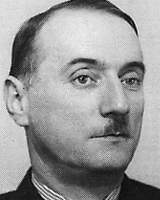 Pilet-Golaz |  Pili |
Pili, Mauro (b. Oct. 16, 1966, Carbonia, Sardegna, Italy), president of Sardegna (1999, 2001-03).
Pilip, Ivan (b. Aug. 4, 1963, Prague, Czechoslovakia [now in Czech Republic]), finance minister of the Czech Republic (1997-98). He was also minister of education, youth, and sports (1994-97) and acting chairman of the Freedom Union-Democratic Union (2002-03).
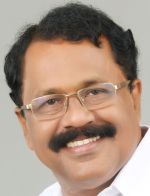 P.S.S. Pillai |
Pillai, Pattom (A.) Thanu (b. July 15, 1885, Trivandrum [now Thiruvananthapuram, Kerala], India - d. July 27, 1970, Trivandrum), prime minister of Travancore (1948), chief minister of Travancore-Cochin (1954-55) and Kerala (1960-62), and governor of Punjab (1962-64) and Andhra Pradesh (1964-68).
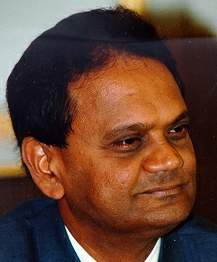 A. Pillay |
Pillay, J(oseph) Y(uvaraj Manuel) (b. March 30, 1934, Klang, Selangor, Federated Malay States [now in Malaysia]), acting president of Singapore (2017). He was also high commissioner to the United Kingdom (1996-99).
Pillay, Navanethem, byname Navi Pillay (b. Sept. 23, 1941, Durban, South Africa), United Nations high commissioner for human rights (2008-14). She was also president of the International Criminal Tribunal for Rwanda (1999-2003).
Pillay, Patrick (Georges), foreign minister of Seychelles (2005-09). He was also minister of education and culture (1993-98), culture and sports (1998-2000), industry and international business (2000-01), and health (2001-05), high commissioner to the United Kingdom (2010-13), a presidential candidate (2015), and speaker of parliament (2016-18).
Piller, Jan (b. July 4, 1922, Plzen, Czechoslovakia [now in Czech Republic] - d. Oct. 20, 1995, Prague, Czech Republic), a deputy premier of Czechoslovakia (1962-65). He was also first secretary of the Communist Party committee of Stredoceský kraj (1968-69) and head of the Central Council of the Revolutionary Trade Union Movement (1970-71).
Pillersdorf, Franz (Xaver) Freiherr von (baron of) (b. March 1, 1786, Vienna, Austria - d. Feb. 22, 1862, Vienna), interior minister (1848) and acting prime minister (1848) of Austria.
Pilloton, Éric (Henri) (b. March 5, 1964, Paris, France), administrator-superior of the French Southern and Antarctic Lands (2007-08). He was also prefect of Mayenne département (2009-12).
Pilný, Ivan (b. July 6, 1944, Prague, Czechoslovakia [now in Czech Republic]), finance minister of the Czech Republic (2017).
Pilsudski, Jan, h. Pilsudski (b. Jan. 15, 1876, Vilna, Russia [now Vilnius, Lithuania] - d. Dec. 21, 1950, Penley, Wales), finance minister of Poland (1931-32); brother of Józef Pilsudski.
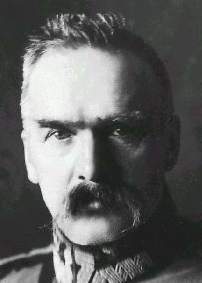 Józef Pilsudski |
Pimen I, secular name Sergey (Mikhailovich) Izvekov (b. July 23 [July 10, O.S.], 1910, Kobylino, Kaluga province, Russia - d. May 3, 1990, Moscow, Russian S.F.S.R.), Locum Tenens (1970-71) and patriarch (1971-90) of Moscow and All Russia. He was also bishop of Balta (1957) and Dmitrov (1957-60), archbishop of Dmitrov (1960-61) and Tula (1961), and metropolitan of Leningrad (1961-63) and Krutitsy (1963-71).
Pimentel, António de Serpa (b. Nov. 20, 1825, Coimbra, Portugal - d. March 2, 1900, Lisbon, Portugal), prime minister of Portugal (1890). He was also minister of public works, commerce, and industry (1859-60), war (1860, 1890), finance (1872-77, 1879), foreign affairs (1881-83), and interior (1890).
Pimentel, Antonio Gomes (b. 1839 - d. Jan. 27, 1917, Rio de Janeiro, Brazil), federal interventor in Amazonas (1891).
Pimentel, Aquilino (Quilinging), also called Aquilino Pimentel, Jr., byname Nene Pimentel (b. Dec. 11, 1933, Claveria, Misamis [now in Misamis Oriental], Philippines - d. Oct. 20, 2019, Manila, Philippines), Philippine politician. He was mayor of Cagayan de Oro (1980-84), minister of local government (1986-87), a vice presidential candidate (1992), and president of the Senate (2000-01).
Pimentel, Aquilino Martin (de la Llana), also called Aquilino Pimentel III, byname Koko Pimentel (b. Jan. 20, 1964, Cagayan de Oro, Misamis Oriental, Philippines), Philippine politician; son of Aquilino Pimentel. He was president of the Senate (2016-18).
Pimentel (Velasco), Emilio (b. 1857, Tlaxiaco, Oaxaca, Mexico - d. March 12, 1926, Veracruz, Mexico), governor of Oaxaca (1902-11); brother of Rafael Pimentel.
Pimentel, Esperidião Eloy de Barros (b. Nov. 18, 1823, Alagoas, Brazil - d. March 15, 1906, Rio de Janeiro, Brazil), president of Santa Catarina (acting, 1859), Rio Grande do Sul (1863-64), Alagoas (1865-66), Rio de Janeiro (1866-68), and Bahia (1884-85); son-in-law of João Capistrano Bandeira de Mello.
Pimentel, Fernando Damata (b. March 31, 1951, Belo Horizonte, Minas Gerais, Brazil), governor of Minas Gerais (2015-19). He was also mayor of Belo Horizonte (2003-09) and Brazilian minister of development, industry, and foreign trade (2011-14).
Pimentel, Francisco de Meneses (b. 1887, Santa Quitéria, Ceará, Brazil - d. 1973, Rio de Janeiro, Brazil), governor of Ceará (1935-45) and justice and interior minister of Brazil (1955-56).
Pimentel, Francisco de Paula Prestes (b. April 30, 1841, Rio de Janeiro, Brazil - d. June 14, 1898, Belo Horizonte, Brazil), president of Sergipe (1888-89).
Pimentel, Graciliano Aristides do Prado (b. April 20, 1840, São Cristóvão, Sergipe, Brazil - d. March 10, 1899, Poços de Caldas, Minas Gerais, Brazil), president of Alagoas (1868), Maranhão (1878), and Minas Gerais (1880).
Pimentel, João José da Costa (b. 1802, Rio de Janeiro, Brazil - d. Aug. 25, 1862), president of Mato Grosso (1849-51).
Pimentel, Joaquim Galdino (b. April 22, 1849 - d. Oct. 26, 1905, Rio de Janeiro, Brazil), president of Mato Grosso (1885-86) and Rio Grande do Sul (1888-89).
Pimentel, Paulo Cruz (b. Aug. 7, 1928, Avaré, São Paulo, Brazil), governor of Paraná (1966-71).
Pimentel (Velasco), Rafael (b. 1855, Oaxaca, Oaxaca, Mexico - d. July 31, 1929, Mexico City, Mexico), governor of Chihuahua (1892) and Chiapas (1899-1905).
Pimentel, Sancho de Barros (b. Oct. 16, 1849, Salvador, Bahia, Brazil - d. Feb. 20, 1924, Rio de Janeiro, Brazil), president of Piauí (1878), Paraná (1881-82), and Ceará (1882).
Pinagé, João Valentino Dantas (b. April 4, 1808, Acari, Rio Grande do Norte, Brazil - d. April 16, 1863, Fortaleza, Ceará, Brazil), acting president of Rio Grande do Norte (1838).
Pinard, (Pierre) Ernest (b. Oct. 10, 1822, Autun, Saône-et-Loire, France - d. Sept. 12, 1909, Bourg-en-Bresse, Ain, France), interior minister of France (1867-68).
Pinard, Lionel Achille (b. 1912, Dominica - d. 1998), administrator of Grenada (1962-64).
Piñate, (Germán) Eduardo (b. Sept. 6, 1956, San Fernando de Apure, Apure, Venezuela), governor of Apure (2021- ). He was also Venezuelan minister of labour (2018-21) and education (2021).
Pinaud, Luiz Miguel (b. March 14, 1889, Niterói, Rio de Janeiro, Brazil - d. Aug. 2, 1973, Niterói), acting governor of Rio de Janeiro (1963).
 Pinay |
Pinc, Frantisek (b. May 23, 1944, Prague, Czechoslovakia [now in Czech Republic]), interior minister of Czechoslovakia (1989). He was also minister of fuel and power (1989-90).
Pinchot, Gifford (b. Aug. 11, 1865, Simsbury, Conn. - d. Oct. 4, 1946, New York City), U.S. forester (1898-1910) and governor of Pennsylvania (1923-27, 1931-35).
Pinckney, Charles (b. Oct. 26, 1757, Charles Town [now Charleston], South Carolina - d. Oct. 29, 1824, Charleston), governor of South Carolina (1789-92, 1796-98, 1806-08). He was also U.S. minister to Spain (1802-04).
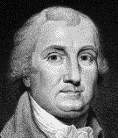 C.C. Pinckney |
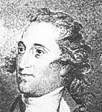 T. Pinckney |
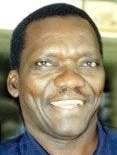 Pinda |
Pindaré, Antonio Pedro da Costa Ferreira, barão de (b. Dec. 26, 1778, Alcântara, Maranhão, Brazil - d. July 18, 1860, Rio de Janeiro, Brazil), president of Maranhão (1835-37). He was made baron in 1854.
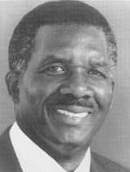 L.O. Pindling |
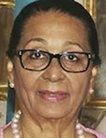 M. Pindling |
Pine, Sir Benjamin Chilley Campbell (b. 1809, London, England - d. Feb. 25, 1891, London), lieutenant governor of Natal (1850-55, 1873-75) and Saint Christopher (1860-66) and governor of the Gold Coast (1857-58) and the Leeward Islands (1869-73); knighted 1856. He was appointed governor of Western Australia in 1868 but never took office.
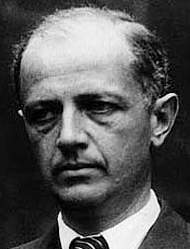 Pineau |
Pineda (Ugarte), (José) Laureano (b. July 4, 1802 - d. Sept. 17, 1853), director of Nicaragua (1851, 1851-53); son of Pedro Benito Pineda.
Pineda, Pedro Benito (d. [assassinated] 1827), acting chief in rebellion of Nicaragua (1826-27).
Pineda Milla, Ricardo (Arturo) (b. June 1, 1928 - d. May 11, 2014, Tegucigalpa, Honduras), foreign minister of Honduras (1974-75). He was also ambassador to the United Kingdom (1976-82) and Mexico (1983-86).
Pinedo (Obarrio), Federico (b. Dec. 29, 1955, Buenos Aires, Argentina), provisional president of the Senate (2015-19) and acting president (2015) of Argentina; son of Federico Pinedo (Saavedra).
Pinedo (Rubio), Federico (b. Aug. 19, 1855, Buenos Aires, Argentina - d. Jan. 1, 1929, Buenos Aires), justice and education minister of Argentina (1906-07). He was also mayor of Buenos Aires (1893-94).
Pinedo (Saavedra), Federico (b. April 22, 1895, Buenos Aires, Argentina - d. Sept. 10, 1971, Buenos Aires), finance minister (1933-35, 1940-41) and economy minister (1962) of Argentina; son of Federico Pinedo (Rubio).
Pinell Centellas, Armando (b. 1918), finance minister of Bolivia (1973). He was also president of the Central Bank (1952-54) and ambassador to Argentina (1954-57?).
Piñera (Echenique), José (Manuel) (b. Oct. 6, 1948), Chilean politician. He was minister of labour and social security (1978-80) and mining (1980-81) and a presidential candidate (1993).
 S. Piñera |
Piñero, Norberto (b. June 6, 1858, Buenos Aires, Argentina - d. July 1, 1938, Buenos Aires), federal interventor in San Luis (1896-97) and finance minister of Argentina (1906, 1913). He was also minister to Chile (1897-98).
Piñerúa Ordaz, Luis (María) (b. 1921, Güiria, Sucre, Venezuela - d. Feb. 8, 2001), governor of Monagas (1960-61) and interior minister of Venezuela (1974-75, 1992-93). He was a presidential candidate in 1978.
Pines-Paz, Ophir (b. July 11, 1961, Rishon LeZion, Israel), interior minister of Israel (2005). He was also minister of science, culture, and sport (2006).
Pinet-Laprade, (Jean Marie) Émile (b. July 13, 1822, Mirepoix, Ariège, France - d. Aug. 17, 1869, Saint-Louis, Senegal), governor of Senegal (1863, 1865-69).
Ping, Jean (b. Nov. 24, 1942, Omboué, Gabon), foreign minister of Gabon (1994, 1999-2008), president of the UN General Assembly (2004-05), and chairman of the Commission of the African Union (2008-12). He was also minister of information, posts and telecommunications, tourism and recreation, and reform of the parastatal sector (1990), mines, petroleum, energy, and water resources (1990-91, 1992-94), and planning, environment, and tourism (1997-99) and a presidential candidate (2016).
Pingree, Hazen S(tuart) (b. Aug. 30, 1840, near Denmark, Maine - d. June 18, 1901, London, England), mayor of Detroit (1890-97) and governor of Michigan (1897-1901).
Pingree, Samuel E(verett) (b. Aug. 2, 1832, Salisbury, N.H. - d. June 1, 1922, Hartford, Vt.), governor of Vermont (1884-86).
Pinheiro, Edward Cattete (b. Feb. 27, 1912, Monte Alegre, Pará, Brazil - d. Jan. 13, 1992, Brasília, Brazil), acting governor of Pará (1956). He was also Brazilian minister of health (1961).
Pinheiro, Ênio dos Santos (b. May 25, 1915 - d. 1997), governor of Guaporé/Rondônia (1953-54, 1961-62).
Pinheiro, Ibsen Valls (b. July 5, 1935, São Borja, Rio Grande do Sul, Brazil - d. Jan. 24, 2020, Porto Alegre, Rio Grande do Sul), Brazilian politician. He was president of the Chamber of Deputies (1991-93).
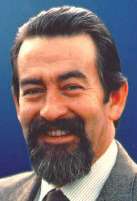 J. Pinheiro |
Pinheiro, Joaquim (António) Franco, acting governor-general of Angola (1974).
Pinheiro, Luiz Antonio Fernandes (b. Nov. 1, 1835, Rio de Janeiro, Brazil - d. Oct. 20, 1905, Rio de Janeiro), president of Espírito Santo (1868-69).
Pinheiro, Miguel Ximenes (Gomes) Rodrigues Sandoval de Castro e Viegas, visconde de (b. Feb. 25, 1806, Montevideo, Viceroyalty of the Río de la Plata [now in Uruguay] - d. May 22, 1884, Lisbon, Portugal), governor-general of Angola (1853-54).
Pinheiro, Pedro de Alcantara (d. June 1870, Natal, Rio Grande do Norte, Brazil), acting president of Rio Grande do Norte (1869).
Pinheiro, Severino Marques de Queiroz (d. Dec. 11, 1945), acting governor of Pernambuco (1921-22).
Pinho, João Ferreira de Araujo (b. June 19, 1851, Santo Amaro, Bahia, Brazil - d. July 23, 1917, Salvador, Bahia), president of Sergipe (1876-78) and governor of Bahia (1908-11).
Piniés (Rubio), Jaime de (b. Nov. 18, 1917, Madrid, Spain - d. Dec. 29, 2003, Madrid), president of the UN General Assembly (1985-86). He was Spain's permanent representative to the United Nations (1968-72, 1973-85) and ambassador to the United Kingdom (1972-73).
Pinilla (Vargas), Claudio (b. Oct. 14, 1859, La Paz, Bolivia - d. Oct. 30, 1938, La Paz), foreign minister (1903-08, 1911-12) and interior minister (1913-14) of Bolivia. He was also minister to Chile (1899-1901, 1915-20).
Pinilla (Fábrega), José M(anuel) (b. March 28, 1915, Panama City, Panama - d. Aug. 10, 1979, Panama City), chairman of the Provisional Junta of Panama (1968-69).
Pinkney, William (b. March 17, 1764, Annapolis, Maryland - d. Feb. 25, 1822, Washington, D.C.), mayor of Annapolis (1795-1800) and U.S. attorney general (1811-14). He was also minister to the United Kingdom (1807-11) and Russia (1816-18).
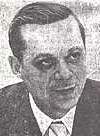 Pinkowski |
Pinney, Charles Robert (b. Nov. 18, 1883, Benalla, Victoria - d. Nov. 18, 1945, Sydney, N.S.W.), administrator of Norfolk Island (1932-37); son-in-law of Sir Hubert Murray.
Pino Suárez, José María (b. Sept. 8, 1869, Tenosique, Tabasco, Mexico - d. [assassinated] Feb. 22, 1913, Mexico City, Mexico), governor of Yucatán (1911) and vice president of Mexico (1911-13). He was also president of the Senate (1911-12) and education minister (1912-13).
 Pinochet |
Pinotti, Roberta (b. May 20, 1961, Genoa, Italy), defense minister of Italy (2014-18).
Pinson, Boris (Davidovich) (b. 1892, Vitebsk, Russia [now in Belarus] - d. [executed] Nov. 23, 1936), executive secretary of the Communist Party committee of the Tatar A.S.S.R. (1923-24). He was also chairman of the Military-Revolutionary Committee (1917) and executive secretary of the party committee (1921) of Vitebsk province.
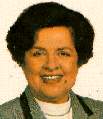 Pintassilgo |
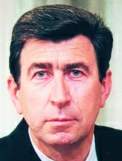 A. Pintat |
Pintat-Solans, Josep (b. Jan. 21, 1925, Sant Julià de Lòria, Andorra - d. Oct. 20, 2007, Barcelona, Spain), head of government of Andorra (1984-90).
 Pintér |
Pinto, Adrião Acácio da Silveira (b. 17... - d. 1868), governor of Macau (1837-43) and governor-general of Angola (1848-51).
Pinto (Garmendia), Aníbal (b. March 15, 1825, Santiago, Chile - d. June 9, 1884, Valparaíso, Chile), president of Chile (1876-81); son of Francisco Antonio Pinto; brother-in-law of Manuel Bulnes. He was also intendant of Concepción (1862-70) and minister of war and navy (1871-75).
Pinto, Antonio da Costa (b. Nov. 25, 1802, Paracatu, Minas Gerais, Brazil - d. March 20, 1880, Rio de Janeiro, Brazil), president of Minas Gerais (1836-37), Pernambuco (1848), and Bahia (1860-61).
Pinto, Antonio Pereira (b. March 20, 1819, Rio de Janeiro, Brazil - d. June 5, 1880, Rio de Janeiro), president of Espírito Santo (1848) and Santa Catarina (1849); grandson of José Pereira Pinto.
Pinto, Carlos de Cerqueira (b. Aug. 23, 1823, Cachoeira, Bahia, Brazil - d. March 30, 1897, Feira de Santana, Bahia), acting president of Espírito Santo (1867) and Santa Catarina (1868-69).
Pinto, Carlos Henrique da Silva Maia (b. June 5, 1866, Porto, Portugal - d. Nov. 2, 1932, Foz do Douro, Porto), prime minister and interior minister of Portugal (1921). He was also minister of colonies (1921) and war (acting, 1921).
Pinto, Eduardo de Andrade (b. June 23, 1834, Vila Real da Praia Grande [now Niterói], Rio de Janeiro, Brazil - d. Jan. 10, 1895), war minister of Brazil (1879). He was also navy minister (1878).
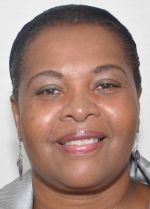 E.T. Pinto |
Pinto (y Díaz de la Puente), Francisco Antonio (b. July 23, 1785, Santiago, Chile - d. July 18, 1858, Santiago), president of Chile (1827-29 [acting], 1829). He was also intendant of Coquimbo (1823-24, 1825-26), minister of foreign affairs and interior (1824-25) and war (provisional, 1824-25), and president of the Chamber of Deputies (1843-45) and the Senate (1847, 1847-49).
Pinto (Blanco), Gilberto (Amílcar) (b. Jan. 18, 1963), governor of Sucre (2021- ).
Pinto, João José de Andrade (b. June 21, 1825, Rio de Janeiro, Brazil - d. Sept. 22, 1898, Rio de Janeiro), acting president of Santa Catarina (1861).
Pinto, João Pereira de Castro (b. Nov. 3, 1863, Mamanguape, Paraíba, Brazil - d. July 11, 1944, Rio de Janeiro, Brazil), president of Paraíba (1912-15).
Pinto, José Antonio (b. 1848, Cartago, Colombia - d. April 1928, Cartago), Colombian politician. He was governor of Cauca (1896-98, 1900-01, 1902) and Valle del Cauca (1914-15) and treasury minister (1901).
Pinto, José de Magalhães (b. July 28, 1909, Santo Antônio do Monte, Minas Gerais, Brazil - d. March 6, 1996), governor of Minas Gerais (1961-66) and foreign minister of Brazil (1967-69). He was also president of the Senate (1975-77).
Pinto, José Pereira (b. Lagos, Portugal - d. Jan. 30, 1794, Rio de Janeiro, Brazil), governor of Santa Catarina (1786-91).
Pinto, Liberato Damião Ribeiro (b. Sept. 29, 1880, Lisbon, Portugal - d. Sept. 4, 1949, Lisbon), prime minister and interior minister of Portugal (1920-21). He was also minister of navy (1921) and finance (1921).
Pinto, Manoel Cerqueira (d. June 18, 1878, Lisbon, Portugal), acting president of Maranhão (1868, 1868).
Pinto, Manoel da Costa (b. Aug. 27, 1780, Lisbon, Portugal - d. March 3, 1852, Rio de Janeiro, Brazil), president of Maranhão (1828-29).
Pinto, Olavo Bilac Pereira (b. Feb. 8, 1908, Santa Rita do Sapucaí, Minas Gerais, Brazil - d. April 18, 1985, Brasília, Brazil), Brazilian politician. He was president of the Chamber of Deputies (1965-66) and ambassador to France (1967-70).
Pinto, Olegário Herculano da Silveira (b. March 16, 1857, Goiás, Goiás, Brazil - d. Aug. 12, 1929), president of Goiás (1913-14).
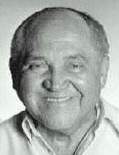 O. Pinto |
Pinto, Ruperto Clodoaldo (b. 1927, Fortaleza, Ceará, Brazil - d. March 1997), governor of Fernando de Noronha (1971-75).
Pinto, Sebastião Barreto Pereira (b. 1775, Porto Alegre, Rio Grande do Sul, Brazil - d. Dec. 22, 1841, Porto Alegre), president of Minas Gerais (1840-41).
Pinto Agüero, Guillermo (b. Jan. 28, 1869, Chillán, Chile - d. October 1911, Bolivia), justice (and education) minister of Chile (1905-06); son of José Manuel Pinto Arias. He was also minister to Ecuador, Colombia, and Central America (1907-09), Panama (1909), and Bolivia (1911).
Pinto Arias, José Manuel (b. April 1818, Santiago, Chile - d. Nov. 12, 1874, Santiago), war and marine minister of Chile (1865-66).
Pinto Concha, Arístides (b. Feb. 7, 1859, Talca, Chile - d. June 5, 1924, Arica, Chile), war and marine minister of Chile (1910-11). He was also inspector-general of the army (1921-22).
Pinto Cruz, Francisco Antonio (b. Aug. 15, 1858, Concepción, Chile - d. Aug. 29, 1905, Berlin, Germany), war and marine minister of Chile (1892-93); son of Aníbal Pinto. He was also minister of justice and education (1893-94) and minister to Germany (1894-98, 1902-05).
Pinto Lima, Francisco Xavier Pinto de Lima, barão de (b. Feb. 20, 1832, São Salvador da Bahia [now Salvador], Bahia, Brazil - d. Aug. 9, 1901, Rio de Janeiro, Brazil), president of Rio Grande do Sul (1870-71), São Paulo (1872), and Rio de Janeiro (1874-78). He was also Brazilian navy minister (1864-65). He was made baron in 1888.
Pinto Rubianes, Pedro (Alfredo) (b. Jan. 31, 1931, Quito, Ecuador - d. April 18, 2022, Quito), finance minister (1982-84) and vice president (2000-03) of Ecuador.
Pînzari, Alexandru (b. Jan. 3, 1973, Causeni, Moldavian S.S.R.), defense minister of Moldova (2020-21).
Pinzón (Flórez), Cerbeleón (b. Sept. 25, 1813, Vélez, New Granada [now in Colombia] - d. Feb. 24, 1870, Bogotá, Colombia), foreign minister of New Granada (1849, 1854-55).
Pinzón (Bueno), Juan Carlos (b. Dec. 22, 1971, Bogotá, Colombia), defense minister of Colombia (2011-15). He was also ambassador to the United States (2015-17, 2021-22).
Pinzón (Romero), Próspero (b. Jan. 1, 1856, Hato Viejo [now Villapinzón], Cundinamarca, New Granada [now Colombia] - d. Jan. 1, 1901, Bogotá, Colombia), war minister of Colombia (1900). He was also governor of Boyacá (1889-92) and Cundinamarca (1895-96).
Pioda, Giovanni Battista (b. Dec. 13, 1786, Locarno, Ticino, Switzerland - d. June 29, 1845, Lugano, Ticino), member of the Council of State of Ticino (1830-39).
Pioda, Giovanni Battista (b. Oct. 4, 1808, Locarno, Ticino, Switzerland - d. Nov. 3, 1882, Rome, Italy), interior minister of Switzerland (1857-63); son of the above. He was also a member of the Council of State of Ticino (1842-47), president of the National Council (1853-54), and minister to Italy (1864-82).
Pioda, Giovanni Battista (b. April 24, 1850, Lugano, Ticino, Switzerland - d. Nov. 30, 1914, Anzio, Lazio, Italy), Swiss diplomat; son of the above. He was minister to the United States (1894-1902) and Italy (1902-14).
Piotrowska, Teresa (b. Feb. 5, 1955, Tczew, Poland), interior minister of Poland (2014-15).
Pipe-Wolferstan, Littleton Edward (b. Aug. 8, 1866 - d. March 7, 1957, Forwood, Minchinhampton, England), acting British adviser in Kedah (1915-16) and resident councillor of Malacca (1921-22).
Piper, Gustaf Abraham (b. May 15, 1692 - d. March 10, 1761, Viksberg, Stockholm county, Sweden), governor of Österbotten (1746-61).
Piperkov, Ivan (Totev) (b. Nov. 5, 1952), Bulgarian diplomat. He was acting permanent representative to the United Nations (2006-07).
Pipinelis, Panagiotis (b. March 21, 1899, Piraeus, Greece - d. July 19, 1970, Athens, Greece), foreign minister (1950, 1963, 1967-70) and prime minister (1963) of Greece. He was also minister to Hungary (1936-40), Bulgaria (1940-41), and the Soviet Union (1941-42) and minister of commerce (1961-63) and coordination (1967).
Pipite, Marcellino, foreign minister of Vanuatu (2004). He was also minister of the comprehensive reform programme (2004), youth and sports (2006), agriculture (2006-07, 2010-11), education (2011, 2011, 2011-12), ni-Vanuatu business (2012-13), and tourism and commerce (2013-14) and speaker of the parliament (2015). In 2015 he was one of 14 government MPs to be handed jail sentences for corruption; when the president was travelling overseas, Speaker Pipite then used his powers as acting president to pardon himself and the others. On his return the president overturned the pardons, with the Supreme Court ruling them as unconstitutional.
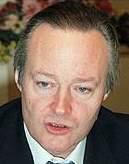 Piqué |
Piquet, Jules Georges (b. Jan. 13, 1839, Chevignat, Ain, France - d. Jan. 18, 1923, Chevignat), resident-general of Cambodia (1886-87), acting governor of Cochinchina (1887), governor of French India (1888-89), and governor-general of French Indochina (1889-91).
Piracha, Ehsan-ul-Haq (d. Feb. 1, 2019), Pakistani politician. He was minister of state for finance, economic affairs, planning, and development (1988-90) and minister of commerce (1993).
Pirapama, Manoel Ignacio Cavalcanti de Lacerda, barão de (b. Sept. 6, 1799, Grajaú, Pernambuco, Brazil - d. March 11, 1882, Niterói, Rio de Janeiro, Brazil), Brazilian politician. He was president of the Senate (1854-61). He was made baron in 1861.
Pirasteh, Sayyed Mehdi (b. 1919, Arak, Persia [now Iran]), interior minister of Iran (1963-64). He was also ambassador to Iraq (1964-68) and Belgium (1968-71).
Piratininga, Antonio Joaquim da Rosa, barão de (b. 1821, São Roque, São Paulo, Brazil - d. Dec. 27, 1886, São Roque), acting president of São Paulo (1869). He was made baron in 1872.
Pirc Musar, Natasa (b. May 9, 1968, Ljubljana, Slovenia), president of Slovenia (2022- ). She was also information commissioner (2004-14).
Pires, Antonio Olyntho dos Santos (b. Dec. 15, 1860, Serro, Minas Gerais, Brazil - d. Feb. 25, 1925, Belo Horizonte, Minas Gerais), president of Minas Gerais (1889). He was also Brazilian minister of transport (1894-96).
Pires, Feliciano Nunes (b. Dec. 29, 1785, Desterro [now Florianópolis], Santa Catarina, Brazil - d. Sept. 2, 1860, Rio de Janeiro, Brazil), president of Santa Catarina (1831-35) and Rio Grande do Sul (1837).
Pires, José Nogueira Valente (b. Dec. 26, 1914 - d. Oct. 15, 2010), governor of Portuguese Timor (1968-72).
Pires, Manuel Ary da Silva (b. Sept. 10, 1900, Rio de Janeiro, Brazil - d. July 28, 1983, Curitiba, Paraná, Brazil), federal interventor in Mato Grosso (1937).
Pires, Maria Helena Lopes de Jesus, byname Milena Pires (b. June 19, 1966, Dili, Portuguese Timor [now Timor-Leste]), Timor-Leste diplomat; wife of Zacarias da Costa. She was permanent representative to the United Nations (2016-21).
Pires, Mário Lemos (b. June 30, 1930, Lamego, Portugal - d. May 22, 2009, Lisbon, Portugal), governor of Portuguese Timor (1974-75).
 P. Pires |
Pires (de Souza), (Francisco) Waldir (b. Oct. 21, 1926, Acajutiba, Bahia, Brazil - d. June 22, 2018, Salvador, Bahia), governor of Bahia (1987-89) and defense minister of Brazil (2006-07). He was also minister of social welfare (1985-86).
Pirie-Gordon, Christopher (Martin), (14th) Laird of Buthlaw (b. Sept. 28, 1911 - d. July 16, 1980), British political agent in the Trucial States (1953-55).
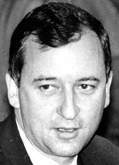 Pirinski |
Piriz Ballon, Ramiro (b. April 20, 1938, Montevideo, Uruguay - d. Oct. 20, 2000, Tokyo, Japan), Uruguayan diplomat. He was ambassador to Egypt and Jordan (1985-90) and Japan (1999-2000) and permanent representative to the United Nations (1990-95).
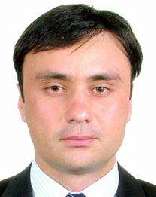 Pîrlog |
Pirocanac, Milan (S.) (b. Jan. 7, 1837, Jagodina, Serbia - d. March 1, 1897, Belgrade, Serbia), foreign minister (1874-75, 1881-83) and prime minister (1880-83) of Serbia. He was also justice minister (1880-81).
Pironti, Michele (b. Jan. 14, 1814, Misciano, Kingdom of Naples [Italy] - d. Oct. 14, 1885, Torre del Greco [now in Napoli metropolitan city], Italy), justice minister of Italy (1869).
Piros, László (b. May 30, 1917, Újkígyós, Hungary - d. Jan. 13, 2006, Szeged, Hungary), interior minister of Hungary (1954-56). He was also head of the State Security Authority (1953-56).
Pirow, Oswald (b. Aug. 14, 1890, Aberdeen, Cape Colony [now in Eastern Cape, South Africa] - d. Oct. 11, 1959, Pretoria, South Africa), justice minister (1929-33) and defense minister (1933-39) of South Africa.
Piruzyan, Aram (Sergeyevich) (b. Feb. 10, 1907, Baku, Russia [now in Azerbaijan] - d. Oct. 2, 1996, Moscow, Russian S.F.S.R.), chairman of the Council of People's Commissars of the Armenian S.S.R. (1937-43). He was also first deputy premier (1948?-52) and minister of food industry (1950-57), light industry (1953), and trade (1957-61).
Pirzada, Abdul Hafeez (b. Feb. 24, 1935, Sukkur, India [now in Pakistan] - d. Sept. 1, 2015, Reading, England), finance minister of Pakistan (1977); son of Pirzada Abdus Sattar. He was also minister of education (1971-73), information (1971-72), inter-provincial coordination (1972-73), law and parliamentary affairs (1973-74), and education and provincial coordination (1974-77).
Pirzada, Syed Sharifuddin (b. June 12, 1923, Burhanpur [now in Madhya Pradesh], India - d. June 2, 2017, Karachi, Pakistan), foreign minister of Pakistan (1966-68) and secretary-general of the Organization of the Islamic Conference (1985-88). He was also attorney general (1965-66, 1968-71, 1977-84) and minister of law and parliamentary affairs (1979-84).
Pisanelli, Giuseppe (b. Dec. 29, 1812, Tricase, Kingdom of Naples [Italy] - d. April 5, 1879, Naples, Italy), justice minister of the Two Sicilies (1860) and Italy (1862-64).
Pisani, Edgard (b. Oct. 9, 1918, Tunis, Tunisia - d. June 20, 2016), high commissioner of New Caledonia (1984-85). He was also prefect of the départements of Haute-Loire (1946-47) and Haute-Marne (1947-54), French minister of agriculture (1961-66), equipment (1966-67), housing (1967), and New Caledonia (1985), European commissioner for development (1981-84), and a vice president of the European Commission (1984).
Pisanu, Giuseppe (b. Jan. 2, 1937, Ittiri, Sassari province, Sardegna, Italy), interior minister of Italy (2002-06). He was also minister for implementation of the government program (2001-02).
 Pisas |
Pishevari, (Sayyid) Jafar, original name Javadzadeh Khalkhali (b. 1892, Khalkhal, Iran - d. 1947, Azerbaijan S.S.R.), head of government of Iranian Azerbaijan (1945-46).
Pisnik, Alois (b. Sept. 8, 1911, Donawitz, Steiermark, Austria - d. Oct. 8, 2004, Rostock, Mecklenburg-Vorpommern, Germany), first secretary of the Socialist Unity Party of Magdeburg (1952-79).
Pistarini (Ludena), Pascual (Ángel) (b. Oct. 6, 1915, Río Cuarto, Córdoba, Argentina - d. October 1999, Buenos Aires, Argentina), member of the Revolutionary Junta of Argentina (1966).
Pistorius, Boris (Ludwig) (b. March 14, 1960, Osnabrück, Niedersachsen, West Germany), defense minister of Germany (2023- ). He was also lord mayor of Osnabrück (2006-13).
Pita, Afelee F(alema) (b. Feb. 11, 1958), Tuvaluan diplomat. He was permanent representative to the United Nations (2006-12) and ambassador to the United States (2010-12).
Pita Romero, Leandro (b. Nov. 22, 1898, Santa María de Ortigueira, La Coruña province, Spain - d. June 25, 1985, Buenos Aires, Argentina), foreign minister of Spain (1933-34). He was also navy minister (1933), minister without portfolio (1934-35), and ambassador to the Vatican (1934-36).
Pitakaka, Sir (Puibangara) Moses (b. Jan. 24, 1945 - d. Dec. 25, 2011, Honiara, Solomon Islands), governor-general of the Solomon Islands (1994-99); knighted 1995.
Pitarka, Bashkim (b. 1942, Durrës, Albania), Albanian diplomat. He was permanent representative to the United Nations (1986-92).
 Pitcher |
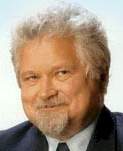 Pithart | 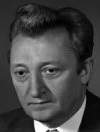 F. Pitra |
Pithey, Jack William (b. Dec. 30, 1903, Potchefstroom, Transvaal [now in South Africa] - d. Nov. 20, 1984), acting president of Rhodesia (1978-79). He was president of the Senate in 1970-78.
Pitirim, secular name Pavel (Vasilyevich) Oknov (b. July 10 [June 28, O.S.], 1858, Livonia province, Russia [now in Latvia] - d. March 25, 1919, Novocherkassk, Russia), metropolitan of Petrograd (1915-17). He was also bishop of Tula (1896-1904) and Kursk (1904-09), archbishop of Kursk (1909-11), Vladikavkaz (1911-13), and Samara (1913-14), and exarch of Georgia (1914-15).
Pitkovsky, Mikhail (Feliksovich) (b. June 1897, Odessa, Kherson province, Russia [now in Ukraine] - d. [executed] May 7, 1938), executive secretary of the Communist Party committee of North Ossetian autonomous oblast (1928-30). He was also acting chairman of the Executive Committee of Kalinin oblast (1937).
Pitra, Frantisek (b. Nov. 13, 1932, Mestec, Chrudim district, Czechoslovakia [now in Czech Republic]), prime minister of the Czech Socialist Republic (1988-90). He was also first secretary of the party committee of Jihoceský kraj (1977-81).
Pitra, Santana André, byname Petroff, interior minister of Angola (1992-97). He was also provincial commissioner of Huambo (1979-82).
Pitt, Albert (b. 1842, Hobart, Tasmania - d. Nov. 18, 1906), defence minister of New Zealand (1906). He was also attorney-general (1903-06).
Pitt, Thomas (b. July 5, 1653, Blandford, Dorset, England - d. April 28, 1726, Swallowfield, Berkshire, England), governor of Madras (1698-1709).
 Pitt the Elder |
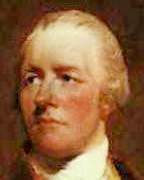 Pitt the Younger |
Pitta (de Castro), Laurindo (b. Nov. 22, 1854, São Fidélis, Rio de Janeiro, Brazil - d. Dec. 21, 1904, Rio de Janeiro, Brazil), president of Espírito Santo (1885).
 Pittermann |
Pittner, Ladislav (b. May 18, 1934, Malacky, Czechoslovakia [now in Slovakia] - d. Aug. 15, 2008, Bratislava, Slovakia), interior minister of Slovakia (1990-92, 1994, 1998-2001).
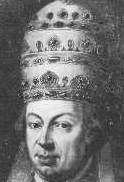 Pius VI |
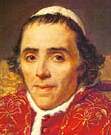 Pius VII |
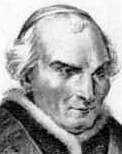 Pius VIII |
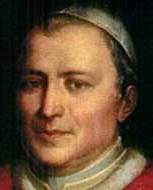 Pius IX |
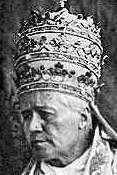 Pius X |
 Pius XI |
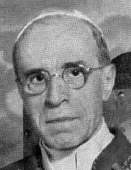 Pius XII |
Pivovarov, Nikolay (Buinovich) (b. 1912, Shunta ulus, Irkutsk province, Russia - d. 1998), chairman of the Council of Ministers of the Buryat A.S.S.R. (1967-77). He was also minister of local industry (1951-57) and deputy premier (1966-67).
Piwnik, Barbara (Elzbieta) (b. March 5, 1955, Kosowice, Poland), justice minister and prosecutor-general of Poland (2001-02).
Piwonka Jilabert, Alfredo (b. Dec. 26, 1887, Osorno, Chile - d. March 17, 1942, Santiago, Chile), interior minister of Chile (1933-34). He was also minister of development (1932-33) and public health (1933-34).
Piza (Rocafort), Rodolfo (Emilio Francisco Manuel de Jesús) (b. Aug. 12, 1958, San José, Costa Rica), Costa Rican politician; son of Rodolfo Piza Escalante. He was a presidential candidate (2014, 2018, 2022) and minister of the presidency (2018-19).
Piza Escalante, Rodolfo (Emilio) (b. July 24, 1930, San José, Costa Rica - d. Jan. 13, 2002, San José), Costa Rican diplomat. He was permanent representative to the United Nations (1978-82).
Pizarro (Tomasio), Rómulo (Bernardo Joaquín) (b. 1955?, Arequipa, Peru), interior minister of Peru (2005-06).
Plachinda, Ivan (Semyonovich), original surname Sporosh (b. March 1898, Glodosy, Kherson province, Russia [now Hlodosy, Kirovohrad oblast, Ukraine] - d. [executed] March 10, 1937), executive secretary of the Communist Party committee of the Moldavian A.S.S.R. (1931-32). He was also executive secretary of the party committee of Vinnitsa city (1930-31) and first secretary of the party committee of Poltava city (1932-36).
Plagino, Alexandru C. (b. Aug. 21, 1821 - d. Oct. 4, 1894, Plainesti, Romania), Romanian politician. He was president of the Senate (1869-71) and minister to Italy (1885-91) and the United Kingdom (1891-93).
Plaisted, Frederick W(illiam) (b. July 26, 1865, Bangor, Maine - d. March 4, 1943, Los Angeles, Calif.), governor of Maine (1911-13); son of Harris M. Plaisted.
Plaisted, Harris M(errill) (b. Nov. 2, 1828, Jefferson, N.H. - d. Jan. 31, 1898, Bangor, Maine), governor of Maine (1881-83).
Plaja, Eugenio (b. April 26, 1914, Rome, Italy - d. May 7, 1991), Italian diplomat. He was ambassador to Egypt (1969-73) and permanent representative to the United Nations (1973-75).
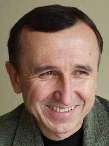 Plakida |
Plamadeala, Mihai, interior minister of Moldova (1997-98). He was also secretary of the Supreme Security Council (1998-2000).
Plamenac, Jovan (S.) (b. 1873 - d. [executed] 1944), prime minister (1919-21, 1922) and foreign minister (1919-21) of Montenegro in exile. He was also minister of education (1907-09, 1912-13) and interior (1909-10, 1910, 1912-13, 1919-21).
Planas Suárez, Simón (b. May 6, 1813, Jobal, Lara, Venezuela - d. April 22, 1864), foreign minister (1853-55) and interior and justice minister (1853-55, 1864) of Venezuela.
Planche, Jacques Ferdinand (b. Jan. 28, 1829, Grenoble, France - d. 1894), commandant of the French Settlements in Oceania (1878-80).
Planet Cordero, Antonio (b. May 3, 1894, Ovalle, Chile - d. ...), foreign minister of Chile (1931). He was also justice minister (1931).
 Planinc |
Plantier, (Emilien Célestin) Nicolas du (b. 1871 - d. ...), French resident of Grande Comore (1899).
Plantz, William Rufus (b. Feb. 10, 1895, St. Thomas, Danish [now U.S.] Virgin Islands - d. 1984), administrator of Bonaire (1927-28).
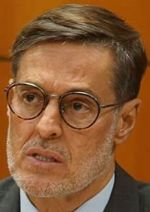 Plasencia |
 Plassnik |
Plasterk, Ronald (Hans Anton) (b. April 12, 1957, The Hague, Netherlands), interior minister of the Netherlands (2012-17). Known as a molecular biologist, he was also minister of education, culture, and science (2007-10).
Plata (Páez), Luis Guillermo (b. 1967, Bogotá, Colombia), Colombian politician. He was minister of commerce, industry, and tourism (2007-10) and ambassador to Spain (2021-22).
Plate, Juan (b. April 8, 1918), finance minister of Paraguay (1944-45). He was also minister of agriculture (1943-44) and ambassador to Argentina (1956-58) and the United States (1958-68).
Platen, Baltzar (Julius Ernst) greve von (b. April 16, 1804, Frugården, Skaraborg [now in Västra Götaland], Sweden - d. March 20, 1875, Stockholm, Sweden), prime minister for foreign affairs of Sweden (1871-72). He was also minister of sea defense (1849-52, 1862-68) and minister to the United Kingdom (1857-61).
Platon, secular name Nikolay (Ivanovich) Gorodetsky (b. May 14 [May 2, O.S.], 1803, Pogoreloye Gorodishche, Tver province, Russia - d. Oct. 13 [Oct. 1, O.S.], 1891, Kiev, Russia [now in Ukraine]), metropolitan of Kiev (1882-91). He was also bishop of Kovno (1843-48) and Riga (1848-50) and archbishop of Riga (1850-67), the Don (1867-77), and Kherson (1877-82).
Platon, secular name Porfiry (Fyodorovich) Rozhdestvensky (b. Feb. 23 [Feb. 11, O.S.], 1866, Kursk province, Russia - d. April 20, 1934, New York City), exarch of Georgia (1915-17). He was also bishop of Chigirin (1902-07), a member of the Russian State Duma (1907), archbishop of the Aleutians and North America (1907-14) and Kishinev (1914-15), and metropolitan of Tiflis (1917-18), Kherson (1918-23), and All America and Canada (1922-34).
Platon I, secular name Pavel Malinovsky (d. June 25 [June 14, O.S.], 1754), Locum Tenens (1745-48) and metropolitan (1748-54) of Moscow. He was also bishop of Krutitsy (1742-48).
Platon II, secular name Pyotr (Georgiyevich) Levshin (b. July 10 [June 29, O.S.], 1737, Chashnikovo, Moscow province, Russia - d. Nov. 23 [Nov. 11, O.S.], 1812), metropolitan of Moscow (1775-1811). He was also archbishop of Tver (1770-75).
Platou, Carl (Nicolai Stoud) (b. July 25, 1885, Bergen, Norway - d. Feb. 1, 1956, Oslo, Norway), governor of Oslo and Akershus (1945-55); nephew of Theodor Christian Stoud Platou.
Platou, Theodor Christian Stoud (b. June 11, 1858, Christiansand [now Kristiansand], Norway - d. April 24, 1942), governor of Buskerud (1902-28).
Platov, Vladimir (Ignatyevich) (b. Oct. 23, 1946, Ovechkino, Vladimir oblast, Russian S.F.S.R. - d. April 16, 2012, Vladimir, Russia), governor of Tver oblast (1995-2003).
Platteel, Pieter Johannes (b. Aug. 14, 1911, Utrecht, Netherlands - d. Aug. 19, 1978, Hilversum, Noord-Holland, Netherlands), governor of Netherlands New Guinea (1958-62). He was also mayor of Ede (1962-68) and Hilversum (1968-76).
Platter, Günther (b. June 7, 1954, Zams, Tirol, Austria), defense minister (2003-07) and interior minister (2004, 2007-08) of Austria and Landeshauptmann of Tirol (2008-22).
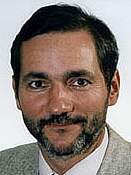 Platzeck |
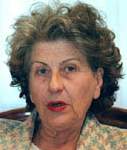 Plavsic |
 Plavyuk |
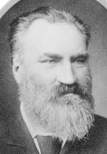 T. Playford | 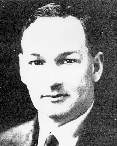 Sir T. Playford |
Playford, Sir Thomas (b. July 5, 1896, Norton Summit, South Australia - d. June 16, 1981, Adelaide, South Australia), premier of South Australia (1938-65); grandson of Thomas Playford. He became lieutenant, serving in World War I at both Gallipoli and in France, where he was badly wounded. He became a member of the South Australian parliament in 1933 and premier in 1938, serving a record 27 years in that post. He was knighted in 1957. In the 1965 elections his party, the Liberal and Country League, was defeated and he retired from parliament in 1967.
Plaza (Plaza y Plaza), Guillermo de la (b. Feb. 19, 1918, Buenos Aires, Argentina - d. Oct. 6, 2011, Buenos Aires), federal interventor in Formosa (1957-58); grandnephew of Victorino de la Plaza. He was also Argentinian ambassador to Bolivia (1970-71) and Uruguay (1974-81).
Plaza (y Palacios1), Victorino de la (b. Nov. 2, 1840, Salta, Argentina - d. Oct. 2, 1919, Buenos Aires, Argentina), president of Argentina (1914-16). He was also finance minister (1876-80, 1883-85), foreign minister (1882-83, 1908-10), and vice president (1910-14).
1 Also referred to as Victorino de la Plaza y Silva. The reason for the ambiguity is that his mother was an illegitimate child, with her mother's family name Palacios; this was used in Victorino's father's will; however, the mother's father's family name was Silva, and she often used it as her own (it is not known whether she had been legitimized). Victorino's own will calls her María Manuela Silva de De la Plaza. Victorino's birth or baptismal records have not been found.
Plaza (y) Gutiérrez (de Caviedes), Leonidas (b. April 18, 1865, Charapotó, Manabí province, Ecuador - d. Sept. 17, 1932, Huigra village, Chimborazo province, Ecuador), president (1901-05, 1912-16) and finance minister (1911) of Ecuador. In 1905-06, General Plaza served as minister to the United States.
 G. Plaza |
Plazas Alcid, Guillermo (b. April 26, 1936, Baraya, Huila, Colombia), justice minister of Colombia (1988-89). He was also mayor of Neiva (1964-65, 1975, 1995-97) and ambassador to the Soviet Union (1979-81, 1989-90), Honduras (1992-93), and Nicaragua (1997-2000).
Plazynski, Maciej (b. Feb. 10, 1958, Mlynary, Poland - d. [plane crash] April 10, 2010, near Smolensk, Russia), Polish politician. He was governor of Gdanskie województwo (1990-96) and marshal of the Sejm (1997-2001).
Plener, Ignaz Edler von (b. May 21, 1810, Vienna, Austria - d. Feb. 17, 1908, Vienna), finance minister (1860-65) and prime minister (1870) of Austria. He was also minister of commerce (1867-70).
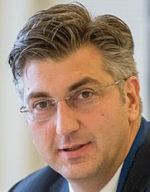 Plenkovic |
Plepyte (Jara), Audra (b. Oct. 30, 1971, Vilnius, Lithuanian S.S.R.), Lithuanian diplomat. She has been ambassador to Spain and Argentina (2010-14) and the United States (2021- ) and permanent representative to the United Nations (2017-21).
Plesca, Valeriu (b. Nov. 8, 1958, Dumitreni, Moldavian S.S.R.), defense minister of Moldova (2004-07).
Pleske, Eduard (Dmitriyevich) (b. Nov. 1 [Oct. 20, O.S.], 1852, St. Petersburg, Russia - d. May 9 [April 26, O.S.], 1904, St. Petersburg), finance minister of Russia (1903-04). He was also governor of the State Bank of the Russian Empire (1894-1903).
Pleskot, Václav (b. Jan. 1, 1921, Milostín, Czechoslovakia [now in Czech Republic] - d. Sept. 29, 2012), acting foreign minister of Czechoslovakia (1968-69). He was ambassador to France in 1960-66.
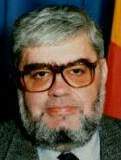 Plesu |
Pleve, Vyacheslav (Konstantinovich), in English also spelled Plehve (b. April 20 [April 8, O.S.], 1846, Meshchovsk, Kaluga province, Russia - d. [assassinated] July 28 [July 15, O.S.], 1904, St. Petersburg, Russia), interior minister of Russia (1902-04). He was also director of the Department of Police (1881-84) and secretary of state (1894-1902).
 Pleven |
Plevljak, Fikret (b. 1956, Zenica, Bosnia and Herzegovina), premier of Zenica-Doboj canton (2011-13).
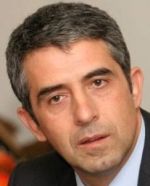 Plevneliev |
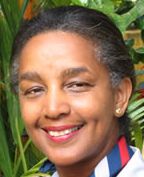 Pluijm-Vrede |
Plumb (of Coleshill in the County of Warwickshire), (Charles) Henry Plumb, Baron (b. March 27, 1925, Ansley, Warwickshire, England - d. April 15, 2022), president of the European Parliament (1987-89). He was knighted in 1973 and created a life peer in 1987.
Plumer, Herbert Charles Onslow Plumer, (1st) Viscount (b. March 13, 1857, London, England - d. July 16, 1932, London), governor of Malta (1919-24) and high commissioner of Palestine (1925-28). He was knighted in 1906 and created Baron Plumer in 1919 and Viscount Plumer in 1929; he was also made a field marshal in 1919.
Plunket, William Lee Plunket, (5th) Baron (b. Dec. 19, 1864, Dublin, Ireland - d. Jan. 24, 1920, London, England), governor of New Zealand (1904-10); son-in-law of Frederick Temple Hamilton-Temple-Blackwood, Marquess of Dufferin and Ava. He succeeded as baron in 1897.
Plyushch, Ivan (Stepanovych) (b. Sept. 11, 1941, Borzna, Chernigov [Chernihiv] oblast, Ukrainian S.S.R. - d. June 26, 2014), Ukrainian politician. He was chairman of the Executive Committee of Kiev oblast (1984-90), chairman of the Verkhovna Rada (1991-94, 2000-02), a minor presidential candidate (1994), and secretary of the National Security and Defense Council (2007).
Poaty-Souchlaty, Alphonse (b. March 25, 1941, Kouilou region, Middle Congo [now Congo (Brazzaville)]), prime minister of Congo (Brazzaville) (1989-90). He was also minister of finance (1975-77), small and medium-sized enterprises (1984-89), and trade (1986-89).
Pobedonostsev, Konstantin (Petrovich) (b. Nov. 30 [Nov. 18, O.S.], 1827, Moscow, Russia - d. March 23 [March 10, O.S.], 1907, St. Petersburg, Russia), Russian official. He was chief procurator of the Holy Synod (1880-1905).
Pobee, Martha Ama Akyaa, Ghanaian diplomat. She was chargé d'affaires in Israel (2000-02) and South Africa (2012-15) and permanent representative to the United Nations (2015-21).
Pobéguin, (Charles) Henri (Olivier) (b. Feb. 25, 1856, Valence, Drôme, France - d. Jan. 25, 1951, Paris, France), French resident of Grande Comore (1897-99).
Poc (b. 1833, Battambang, Cambodia - d. 1907), prime minister of Cambodia (1903-07). He was also minister of marine (1889-95), palace (1898-99), and justice (1899-1903).
Poçi, Spartak (Dilaver) (b. Jan. 4, 1949, Tiranë, Albania), public order minister of Albania (1999-2000). He was also minister of public works (2000-02) and transport and telecommunications (2002-05).
Pociatek, Ján (b. Sept. 16, 1970, Bratislava, Slovakia), finance minister of Slovakia (2006-10). He was also minister of transport, construction, and regional development (2012-16).
Pocs, Eizens, Russian Eyzhen (Antonovich) Poch (b. Nov. 20, 1932, Atasiene parish, Latvia), foreign minister of the Latvian S.S.R. (1989-90). He was also Soviet/Russian ambassador to Zambia (1990-92).
Podberezkin, Aleksey (Ivanovich) (b. Feb. 7, 1953, Moscow, Russian S.F.S.R.), Russian politician. He was a minor presidential candidate (2000) and co-chairman of the Social Justice Party (2005-08).
Podedworny, Boleslaw (b. Jan. 7, 1898, Pechratka, Poland - d. Nov. 18, 1972, Warsaw, Poland), joint acting chairman of the Council of State of Poland (1964). He was minister of forestry (1947-54) and a deputy chairman of the Council of State (1957-71).
Podgornov, Nikolay (Mikhailovich) (b. May 15, 1949), head of the administration of Vologda oblast (1991-96).
 Podgorny |
Podgorodnikov, Ivan (Grigoryevich) (b. 1841 - d. March 20 [March 7, O.S.], 1910), governor of Suwalki (1891-95) and Radom (1895-99) and acting governor-general of Warsaw (1900-01).
Podinilame, (Herath Ralalage) Jayatilake (b. March 19, 1946 - d. April 28, 2013), chief minister of Sabaragamuwa (1993-98). He was also Sri Lankan minister of North West regional development (2001-04).
 F. Poe |
Poe (Llamanzares), (Mary) Grace (Natividad Sonora), original name Mary Grace Natividad Contreras Militar (b. 1968), Philippine presidential candidate (2016); adopted daughter of Fernando Poe, Jr. She was found as an infant on Sept. 3, 1968, in Jaro, Iloilo, by one Edgardo Militar; her name was changed upon adoption in 1974 (Llamanzares added on marriage in 1991).
Poenaru, Constantin (b. April 8, 1842, Bucharest, Walachia [now in Romania] - d. 1912, Bucharest), war minister of Romania (1894-95). He was also chief of the General Staff (1898-1901).
Pogány, József, original surname Schwarz, also known as John Pepper (b. Nov. 8, 1886, Budapest, Hungary - d. 1939, U.S.S.R.), foreign commissar of Hungary (1919). He was also commissar of education (1919).
Poggi, Claudio (Javier) (b. Oct. 7, 1963, Alcira Gigena, Córdoba, Argentina), governor of San Luis (2011-15).
Poggi, João José Innocencio (b. 1796? - d. Dec. 20, 1875, Paraíba [now João Pessoa], Paraíba, Brazil), acting president of Paraíba (1866).
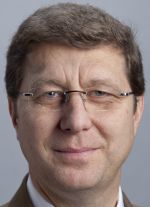 Poggia |
Pogosov, Pyotr (A.), first secretary of the Communist Party committee of Nagorny Karabakh (1934-37).
Pogosyan, Genrikh (Andreyevich) (b. 1931 - d. 2000), first secretary of the Communist Party committee of Nagorno-Karabakh autonomous oblast (1988-89).
Pogosyan, Stepan (Karapetovich) (b. Feb. 10, 1932, Agakchi, Armenian S.S.R. - d. May 17, 2012, Yerevan, Armenia), first secretary of the Communist Party of the Armenian S.S.R. (1990-91). He was also chairman of the State Committees for Television and Broadcasting (1978-88) and Publishing, Printing, and Book Trade (1990) and first secretary of the party committee of Yerevan city (1990).
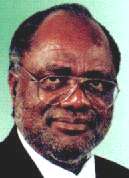 Pohamba |
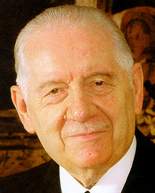 Poher |
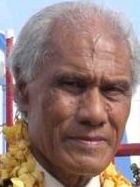 Pohiva |
Poignant, Per Gustaf Emil (b. Dec. 8, 1829, Stockholm, Sweden - d. June 8, 1910, Stockholm), governor of Gotland (1883-1900).
Poignet, Augustin (b. April 28, 1928, Sibiti, Middle Congo [now Congo (Brazzaville)] - d. June 26, 2008, Paris, France), defense minister (1968) and president of the Senate (1992-97) of Congo (Brazzaville).
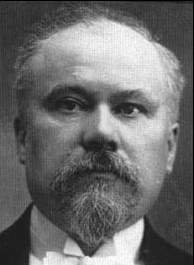 Poincaré |
Poinsett, Joel R(oberts) (b. March 2, 1779, Charleston, S.C. - d. Dec. 12, 1851, near present Statesburg, S.C.), U.S. secretary of war (1837-41). He was also minister to Mexico (1825-29).
Poinso-Chapuis, Germaine (Marie Joséphine) (b. March 6, 1901, Marseille, France - d. Feb. 20, 1981, Marseille), French politician. The first woman to serve in the French cabinet, she was minister of public health and population (1947-48).
 Point |
Poiré (Romero), Alejandro (Alfonso) (b. Jan. 15, 1971, Mexico City, Mexico), interior minister of Mexico (2011-12).
Poiret, Jean Louis Georges (b. April 25, 1872, Le Mans, Sarthe, France - d. 1932), governor of French Guinea (1912-13, 1915-29).
Poisson, Émile (b. May 25, 1905, Ouidah, Dahomey [now Benin] - d. June 4, 1999, Paris, France), justice minister of Dahomey (1959-60). He was also mayor of Ouidah (1956-59) and ambassador to France, the United Kingdom, Italy, and Benelux countries (1964-67).
Pok, Fabian (b. Feb. 22, 1963), defense minister of Papua New Guinea (2012-17). He was also minister of forests (1997-98), public enterprise and communications (1998-99), trade, tourism, commerce, industry, and police (1999), lands and physical planning (1999-2000), petroleum and energy (2000, 2017-19), and labour and employment (2001-02).
Pokasui, James, defense minister of Papua New Guinea (1987-88).
Pokhrel, Ishwor, Ishwor also spelled Ishwar, Pokhrel also spelled Pokharel (b. Feb. 4, 1954, Mamkha-2, Okhaldhunga district, Nepal), deputy prime minister (2012, 2018-21), foreign minister (2012), and defense minister (2018-20) of Nepal. He was also minister of industry, commerce, and supplies (2004-05).
Pokhvisnev, Mikhail (Nikolayevich) (b. 1811 - d. Nov. 4, 1882, Paris, France), governor of Vilna (1857-63). He was also head of the Russian Directorate for Press Affairs (1866-70).
Pokka, (Pirkko) Hannele (b. May 25, 1952, Ruovesi, Finland), governor of Lapland (1994-2008). She was also Finnish justice minister (1991-94).
Poklukar, Bostjan (b. Jan. 27, 1971, Jesenice, Slovenia), interior minister of Slovenia (2018-20, 2023- ).
Pokotilo, Vasily (Ivanovich) (b. Aug. 20 [Aug. 8, O.S.], 1856 - d. af. 1919), governor of Fergana oblast (1904-07) and Semirechye oblast (1907-08). He was also ataman of the Don Cossack Host (1912-15).
Pokrovsky, Nikolay (Nikolayevich) (b. Feb. 8 [Jan. 27, O.S.], 1865, St. Petersburg, Russia - d. Dec. 12, 1930, Kaunas, Lithuania), foreign minister of Russia (1916-17). He was also state comptroller (1916).
Pol, Marek (Ludwik) (b. Dec. 8, 1953, Slupsk, Poland), Polish politician. He was minister of industry and trade (1993-95) and a deputy prime minister and minister of infrastructure (2001-04).
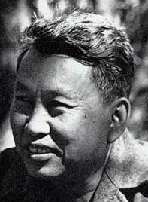 Pol Pot |
Polácek, Karel (b. July 7, 1913, Starý Plzenec, Austria [now in Czech Republic] - d. Oct. 28, 1976, Plzen, Czechoslovakia [now in Czech Republic]), a deputy premier of Czechoslovakia (1955-58). He was also minister of heavy machine building (1953), machine building (1953-55), and general machine building (1958-65), a minister without portfolio (1965-66), and head of the Central Council of the Revolutionary Trade Union Movement (1968-70).
Polar (Vargas), (José) Jorge (María) (b. April 21, 1855, Arequipa, Peru - d. June 6, 1932, Arequipa), justice and education minister of Peru (1904-06); son of Juan Manuel Polar. He was also minister to Cuba and Venezuela (1919).
Polar (Carasas), Juan Manuel (b. Dec. 27, 1809, Arequipa, Peru - d. May 14, 1881, Arequipa), finance minister (1868) and foreign minister (1868) of Peru. He was also minister to Bolivia (1859) and Chile (1859-62).
Polar Ugarteche, (José Miguel) Mario (b. Sept. 5, 1912, Arequipa, Peru - d. Nov. 16, 1988, Lima, Peru), second vice president of Peru (1963-68).
Polat, Oyun (Oyunovich) (b. Nov. 1, 1906 - d. 1992), chairman of the Presidium of the Little Khural of Tannu Tuva (1938-40).
Polenz, Ruprecht (Rolf Gotthelf) (b. May 26, 1946, Denkwitz, near Bautzen, Germany), German politician; general secretary of the Christian Democratic Union (2000).
Poleshko, Georgy (Ya.), executive secretary of the Communist Party committee of the Dagestan A.S.S.R. (1921-22).
Poletti, (Aldo) Charles (b. July 2, 1903, Barre, Vt. - d. Aug. 8, 2002), acting governor of New York (1942-43). He briefly (for 29 days) moved up from lieutenant governor in December 1942 after Gov. Herbert H. Lehman resigned to direct war-relief efforts in Europe. Poletti himself received an Army commission in 1943 and directed the reconstruction of infrastructure and food supplies as Allied forces pushed into Italy. He later directed civil affairs operations in Rome, Naples, and Milan.
Polevanov, Vladimir (Pavlovich) (b. Nov. 11, 1949), head of the administration of Amur oblast (1993-94). He was also Russian deputy prime minister and chairman of the State Committee for Management of State Property (1994-95).
Polezhayev, Leonid (Konstantinovich) (b. Jan. 30, 1940, Omsk, Russian S.F.S.R.), chairman of the Executive Committee (1990-91), head of the administration (1991-95), and governor (1995-2012) of Omsk oblast.
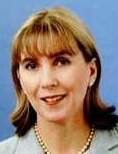 Polfer |
Polic, Nedzad (b. Nov. 16, 1969, Zavidovici [now in Federation of Bosnia and Herzegovina]), premier of Zenica-Doboj (2003-06).
Polignac, Auguste Jules Armand Marie, prince de (b. May 14, 1780, Versailles, France - d. March 29, 1847, Saint-Germain-en-Laye, Seine-et-Oise [now in Yvelines], France), prime minister and foreign minister of France (1829-30). He was also ambassador to the United Kingdom (1823-29).
Pólit (Cevallos), Rafael (b. 1823 - d. 1897), foreign minister and acting president of Ecuador (1875). He was also president of the Senate (1875).
Politis, Nikolaos (Sokratis) (b. 1872, Corfu, Greece - d. March 4, 1942, Cannes, France), foreign minister of Greece (1917-20, 1922). He was also ambassador to France (1924-25, 1927-40).
Polivanov, Aleksey (Andreyevich) (b. March 16 [March 4, O.S.], 1855 - d. Sept. 25, 1920, Riga, Latvia), war minister of Russia (1915-16). He was also chief of the General Staff (1905-06).
Polivanov, Viktor (Petrovich) (b. Nov. 6 [Oct. 25, O.S.], 1831 - d. Oct. 27 [Oct. 15, O.S.], 1889, St. Petersburg, Russia), governor of Estonia (1875-85).
Polk, Charles (b. Nov. 15, 1788, Bridgeville, Del. - d. Oct. 27, 1857, Milford, Del.), governor of Delaware (1827-30 and [acting] 1836-37); third cousin once removed of James K. Polk.
Polk, Frank Lyon (b. Sept. 13, 1871, New York City - d. Feb. 7, 1943, New York City), acting U.S. secretary of state (1920); grandnephew of James K. Polk.
 J.K. Polk |
Polk, Trusten (b. May 29, 1811, near Bridgeville, Del. - d. April 16, 1876, St. Louis, Mo.), governor of Missouri (1857); fourth cousin of James K. Polk.
Polk, William Hawkins (b. May 24, 1815, Maury county, Tenn. - d. Dec. 16, 1862, Nashville, Tenn.), U.S. diplomat; brother of James K. Polk. He was chargé d'affaires in the Two Sicilies (1845-47).
Poll, Frederik van de (b. Sept. 28, 1780, Bloemendaal, Netherlands - d. Nov. 13, 1853, Utrecht, Netherlands), governor of Utrecht (1840-50). He was also mayor of Amsterdam (1829-36).
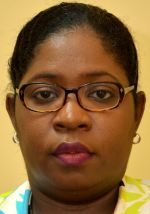 Pollack-B. |
 Pollitt |
Polman, Han, byname of Johannes Marcellus Maria Polman (b. Jan. 16, 1963, Ootmarsum, Netherlands), king's commissioner of Zeeland (2013- ).
Polo (Vega), Solón (b. Feb. 4, 1871, Chiclayo, Peru - d. Sept. 4, 1934, Lima, Peru), foreign minister of Peru (1904-05, 1906-08, 1915-16, 1933-34). He was also minister to Bolivia (1909-11).
Pololikashvili, Zurab (b. Jan. 12, 1977, Tbilisi, Georgian S.S.R.), secretary-general of the World Tourism Organization (2018- ). He was also Georgian ambassador to Spain, Andorra, Morocco, and Algeria (2006-09) and minister of economic development (2009-10).
Polonsky, Vladimir (Ivanovich) (b. June 17 [June 5, O.S.], 1893, Tobolsk [now in Tyumen oblast], Russia - d. [executed] Oct. 30, 1939), first secretary of the Communist Party of the Azerbaijan S.S.R. (1930-33).
Polónyi, Géza (b. April 3, 1848, Knezics, Hungary [now part of Zitavany, Slovakia] - d. Feb. 1, 1920, Budapest, Hungary), justice minister of Hungary (1906-07).
Polovtsov, Aleksandr (Aleksandrovich) (b. June 12 [May 31, O.S.], 1832, St. Petersburg, Russia - d. Oct. 7 [Sept. 24, O.S.], 1909, Rapti, St. Petersburg province [now part of Dzerzhinskogo, Leningrad oblast], Russia), Russian secretary of state (1883-92); nephew of Yuvenaly.
Polozkov, Ivan (Kuzmich) (b. Feb. 16, 1935, Leshch-Plota, Kursk oblast, Russian S.F.S.R.), first secretary of the Communist Party of the Russian S.F.S.R. (1990-91). He was also first secretary of the party committee of Krasnodar kray (1985-90).
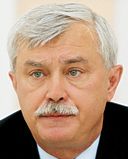 Poltavchenko |
Poltorak, Stepan (Tymofiyovych) (b. Feb. 11, 1965, Vesela Dolyna, Odessa oblast, Ukrainian S.S.R.), defense minister of Ukraine (2014-19). He was also commander of the National Guard (2014).
Poltoranin, Mikhail (Nikiforovich) (b. Nov. 22, 1939, Ridder, Kazakh S.S.R.), a deputy prime minister of Russia (1992). He was also minister of press and information (1990-92).
Polubotok, Pavlo (Leontiyovych) (b. 1660 - d. Dec. 28 [Dec. 17, O.S.], 1724, St. Petersburg, Russia), acting hetman of Ukraine (1722-24).
Polumordvinov, Grigory (Afanasyevich) (b. March 21 [March 9, O.S.], 1897, Ozerki, Saratov province, Russia - d. [executed] Dec. 29, 1937), executive secretary of the Communist Party committee of the Mordovian national okrug (1928-29). He was also acting executive secretary of the party committee of Penza province (1925) and first secretary of the party committee of Kostroma city (1935-37).
Poluyanov, Nikolay (Andreyevich) (b. July 14, 1952), head of the administration of Komi-Permyak autonomous okrug (1991-2000).
Polverini, Renata (b. May 14, 1962, Rome, Italy), president of Lazio (2010-13).
Polvon-zoda, Abdusamat (Abdukhamidovich), justice minister of Uzbekistan (2000-05).
Polyakov, Aleksandr (Aleksandrovich) (b. August 1902, Penza, Russia - d. [executed] May 1938, Saransk, Mordovian A.S.S.R., Russian S.F.S.R.), acting first secretary of the Communist Party committee of the Mordovian A.S.S.R. (1937).
Polyakov, Ivan (Yevteyevich) (b. Nov. 25, 1914 - d. Feb. 8, 2004), chairman of the Presidium of the Supreme Soviet of the Belorussian S.S.R. (1977-85). He was also chairman of the Executive Committee of Gomel oblast (1956-57) and first secretary of the party committees of Gomel (1957-64) and Minsk (1964-77) oblasti.
Polyakov, Mikhail (Kharitonovich) (b. Sept. 12 [Aug. 31, O.S.], 1884, Yekaterinburg, Russia - d. [executed] June 21, 1939, Moscow, Russian S.F.S.R.), chairman of the Crimean Revolutionary Committee (1921).
 Polyansky |
Polye, Don (Pomb) (b. Feb. 1, 1967, Enga province, Papua New Guinea), foreign minister (2010-11) and finance minister (2011-12, 2012) of Papua New Guinea. He has also been minister of transport and civil aviation (2002-07), higher education, research, science, and technology (2005-06, 2006, 2022- ), works, public services, culture, and tourism (2007), works, transport, and civil aviation (2007-09, 2010), treasury (2011-14), and sports (2022- ) and deputy prime minister (2006-07, 2010).
Polynice, Edmond (Sylvestre), chairman (1914, 1914) and member (1915) of the Committee of Public Welfare and member of the Revolutionary Committee (1915) of Haiti.
Pomaret, Charles (b. Aug. 16, 1897, Montpellier, Hérault, France - d. Sept. 11, 1984, Saint-Paul-de-Vence, Alpes-Maritimes, France), interior minister of France (1940). He was also minister of labour (1938-40, 1940).
Pomat, Job (b. Feb. 4, 1960), Papua New Guinean politician. He has been minister for inter-government relations (2007-11) and fisheries (2011-12), speaker of parliament (2017- ), and acting governor-general (2023).
Pombal, Sebastião José de Carvalho e Mello, marquês de (b. May 13, 1699, Lisbon, Portugal - d. May 8, 1782, Pombal, Portugal), Portuguese statesman. He served as ambassador to England (1738-45) and Austria (1745-49) and was appointed secretary of state for foreign affairs and war in 1750. He soon came to dominate Portuguese politics and King José I gave him a free hand. He showed resourcefulness in re-planning Lisbon after the great earthquake of 1755, and in 1756 was made principal minister (secretário de estado dos negócios do reino). A believer in enlightened despotism, he opposed the tyranny of the church and the intrigues of nobles and Jesuits, and banished the Jesuits in 1759. He established elementary schools, reorganized the army, introduced fresh colonists into the Portuguese settlements, and established West India and Brazil companies. The tyranny of the Inquisition was broken. Agriculture, commerce, and finance were improved. Pombal's whole program, however, was executed by ruthless suppression of all opposition. The creation of a wine monopoly caused an uprising in Porto, which was put down (1757) with ferocity. A group of nobles accused of an attempt (1758) to kill the king were tortured to death. Thousands of people were imprisoned. He was created conde de Oeiras in 1759 and marquês de Pombal in 1769. His power as virtual ruler of the country ended on the accession of Maria I (1777), when he was quickly dismissed. In 1781 he was found guilty of abuse of power and declared to be deserving of exemplary punishment, but in view of his age and infirmity was only banished from Lisbon.
Pombo (O'Donnell), Lino de (b. Jan. 7, 1797, Cartagena, New Granada [now in Colombia] - d. Nov. 20, 1862, Bogotá, Colombia), foreign minister (1833-38, 1840, 1855-57) and finance minister (1845-46) of New Granada. He was also acting governor of Cundinamarca (1840-41) and minister to Venezuela (1841-43).
Pomerants, Marko (b. Sept. 24, 1964, Tamsalu, Estonian S.S.R.), interior minister of Estonia (2009-11). He was also minister of social affairs (2003-05) and environment (2015-17).
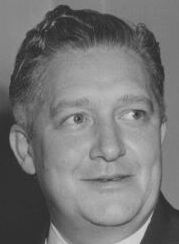 Pomeroy | 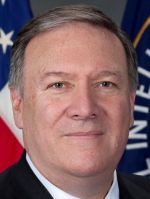 Pompeo |
Pometta, Francesca (b. June 24, 1926, Geneva, Switzerland - d. March 16, 2016), Swiss diplomat. She was permanent observer to the United Nations (1982-87) and ambassador to Italy and Malta (1987-91).
Pommies, Robert (b. Dec. 18, 1941, Paris, France), administrator-superior of Wallis and Futuna (1990-93) and prefect of Réunion (1995-98). He was also prefect of Indre département (1994-95).
Pompeo, Mike, byname of Michael Richard Pompeo (b. Dec. 30, 1963, Orange, Calif.), U.S. CIA director (2017-18) and secretary of state (2018-21).
 Pompidou |
Ponce, Generoso Paes Leme de Souza (b. July 10, 1852, Cuiabá, Mato Grosso, Brazil - d. Nov. 7, 1911, Rio de Janeiro, Brazil), president of Mato Grosso (1892 [acting], 1907-08).
Ponce (Borja), N(icolás) Clemente (b. June 22, 1866, Quito, Ecuador - d. Nov. 21, 1929, Panama City, Panama), foreign minister of Ecuador (1920-24). He was also minister to Bolivia (1910-11).
Ponce Arenas, (Manuel) Luis (b. Jan. 27, 1912, Lima, Peru - d. Sept. 10, 1980, Callao, Peru), interior minister of Peru (1967-68). He was also navy minister (1965-67).
Ponce Brousset, Manuel María (b. April 5, 1874, Arequipa, Peru - d. July 18, 1966, Lima, Peru), chairman of the military junta of Peru (1930).
Ponce Enríquez, Camilo (b. Jan. 31, 1912, Quito, Ecuador - d. Sept. 14, 1976, Quito), foreign minister (1944-45), interior minister (1953-55), and president (1956-60) of Ecuador. He was also minister of public works (1947). He was an unsuccessful presidential candidate in 1968.
Ponce Lozada, Luis, interior and justice minister (1947, 1950-51) and defense minister (1951) of Bolivia. He was also minister of public works and communications (1948) and president of the Chamber of Deputies (1949-50).
Ponce Miranda, Neftalí (b. Feb. 5, 1908, Quito, Ecuador - d. ...), foreign minister of Ecuador (1948-52, 1963-64). He was also chargé d'affaires in Colombia (1944) and ambassador to Brazil (1954-60) and the United States (1962-63).
Ponce Yépez, José María (b. Aug. 6, 1913, Quito, Ecuador - d. 1990), foreign minister of Ecuador (1970-71). He was also chargé d'affaires in Colombia (1946) and Cuba (1949-52) and ambassador to Cuba (1954-56), Bolivia (1956-57), Peru (1957-60), Brazil (1961-63, 1969-70), and Guatemala (1963-68, 1971-74).
Poncelet, Jules (Jean Pierre Joseph) (b. May 19, 1869, Offagne, Belgium - d. April 23, 1952, Offagne), chairman of the Chamber of Representatives of Belgium (1930-36).
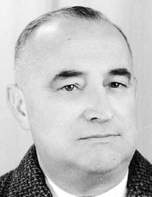 Ponchardier |  Pongpol |
Ponder, James (b. Oct. 31, 1819, Milton, Del. - d. Nov. 5, 1897, Milton), governor of Delaware (1871-75); brother-in-law of brother of Gove Saulsbury.
Ponge, Étienne (Joseph), resident of Wallis and Futuna (1898-1901).
Pongpol Adireksarn (b. March 23, 1942), foreign minister (1992) and deputy prime minister (2001-02) of Thailand. He was also minister of agriculture and cooperatives (1997-2000) and education (2002-03).
 Poniatowski |
Ponikowski, Antoni (b. May 29, 1878, Siedlce, Poland - d. Dec. 27, 1949, Warsaw, Poland), prime minister of Poland (1918, 1921-22). He was also minister of religious affairs and education (1921-22).
Ponomarenko, Panteleimon (Kondratyevich) (b. Aug. 9 [July 27, O.S.], 1902, Shelkovsk farm, Kuban oblast [now in Krasnodar kray], Russia - d. Jan. 18, 1984, Moscow, Russian S.F.S.R.), first secretary of the Communist Party (1938-47) and chairman of the Council of People's Commissars/Ministers (1944-48) of the Belorussian S.S.R. and first secretary of the Communist Party of the Kazakh S.S.R. (1954-55). He was also Soviet minister of food reserves (1950-52) and culture (1953-54), a deputy premier (1952-53), and ambassador to Poland (1955-57), India (1957-59), Nepal (1958-59), and the Netherlands (1959-62).
Ponomarev, Mikhail (Aleksandrovich) (b. Sept. 2, 1918, Berezovka, Perm province, Russia - d. Aug. 30, 2001, Moscow, Russia), first secretary of the Communist Party committee of the Kalmyk A.S.S.R. (1959-61). He was also first secretary of the party committee of Vladimir oblast (1961-83 [rural in 1963-64]).
Ponos, Zdravko (b. Nov. 3, 1962, Golubic, near Knin, Croatia), Serbian politician. He was chief of the General Staff (2006-08) and a presidential candidate (2022).
Pons Campuzano, Antonio (b. Nov. 10, 1897, Guayaquil, Ecuador - d. Jan. 7, 1980, Guayaquil), interior minister (1934-35) and acting president (1935) of Ecuador. He was also minister to Argentina (1935-37).
Pons Irazazábal, Félix (b. Sept. 14, 1942, Palma de Mallorca, Spain - d. July 2, 2010, Palma de Mallorca), Spanish politician. He was minister of territorial administration (1985-86) and president of the Congress of Deputies (1986-96).
Pons Irazazábal, José María (b. April 12, 1948, Palma de Mallorca, Spain), Spanish diplomat; brother of Félix Pons Irazazábal. He was ambassador to the Netherlands (1995-2001), Denmark (2001-03), Austria (2008-10), and Malta (2014-18).
Ponsot, (Auguste) Henri (b. 1877 - d. 1963), French high commissioner of Syria and Lebanon (1926-32) and resident-general of Morocco (1933-36). He was also ambassador to Turkey (1936-38).
Pont, René (Lucien) (b. April 10, 1915 - d. Feb. 19, 2008), governor of Saint-Pierre and Miquelon (1958-60).
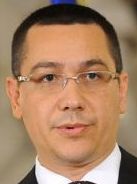 Ponta |
Pontal, Manoel Ignacio de Mello e Souza, barão do (b. 1771, Arcos de Valdevez, Portugal - d. May 20, 1859, Ponte Nova, Minas Gerais, Brazil), president of Minas Gerais (1831-33, 1833, and [acting] 1835). He was made baron in 1841.
Pontas, Sutan Kumala (b. 1898? - d. July 19, 1972), governor of Sumatera Utara (1956-60).
Ponte, João de Saldanha da Gama Mello Torres Guedes de Brito, (6°) conde da (b. Dec. 4, 1773, Portugal - d. May 24, 1809, São Salvador da Bahia [now Salvador], Brazil), governor of Bahia (1805-09); grandson of João de Saldanha da Gama.
Pontes, Manoel José Pires da Silva (d. 1850), president of Espírito Santo (1833-35).
Pontes, Marcos Cesar (b. March 11, 1963, Bauru, São Paulo, Brazil), Brazilian politician. The first Brazilian astronaut, he was minister of science, technology, innovation, and communications (2019-22).
Pontes, Rodrigo de Souza da Silva (b. Oct. 27, 1799, São Salvador da Bahia [now Salvador], Brazil - d. Jan. 30, 1855, Buenos Aires, Argentina), president of Alagoas (1836-38) and Pará (1842-43); son of Antonio Pires da Silva Pontes Leme. He was also Brazilian minister to Argentina (1852-55).
Ponton, Louis (Georges André) (b. Dec. 22, 1906, Tananarive [now Antananarivo], Madagascar - d. July 31, 1944, Fort-de-France, Martinique), governor of Martinique (1943-44).
Ponty, (Amédée) William (Merlaud-) (b. Feb. 4, 1866, Rochefort, Charente-Inférieure [now Charente-Maritime], France - d. June 13, 1915, Dakar, Senegal), delegate (1899-1904) and lieutenant governor (1904-08) of Haut-Sénégal-Niger and governor-general of French West Africa (1908-15).
Ponulele, Aminuddin (b. July 5, 1939, Palu, Netherlands East Indies [now in Sulawesi Tengah, Indonesia] - d. Jan. 27, 2021, Palu), governor of Sulawesi Tengah (2001-06).
Poonacha, Cheppudira Muthana (b. 1910, Attur village, Coorg province [now in Karnataka state], India - d. Aug. 3, 1990, Gonikoppal, Karnataka, India), chief minister of Coorg (1952-56) and governor of Madhya Pradesh (1978-80) and Orissa (1980-83). He was also Indian minister of railways (1967-69) and steel and heavy engineering (1969).
 Poos |  Pope |
Pop, Mihail (b. Oct. 31, 1955, Sredneye Vodyanoye, Ukrainian S.S.R.), finance minister of Moldova (2005-08).
Popa, Gherasim, a deputy premier of Romania (1957-61). He was also minister of metallurgical and machine-building industry (1955-57) and heavy industry (1957-59).
Popal, Ali Ahmad (b. Feb. 22, 1916, Kabul, Afghanistan - d. Nov. 21, 2004), Afghan politician. He was minister of education (1956-64, 1967-68), second deputy prime minister (1962-64), first deputy prime minister (1967-68), and ambassador to West Germany, Sweden, Denmark, and Switzerland (1964-66), Turkey (1966-67), Pakistan, Ceylon/Sri Lanka, and Thailand (1969-74), Japan, Australia, and South Korea (1974-77), and the Soviet Union, Finland, Romania, and Mongolia (1977-78).
Pope, Neil (Albert) (b. March 3, 1949, Melbourne, Vic.), administrator of Norfolk Island (2012-14).
Popelka, Augustin (b. April 25, 1854, Brünn, Austria [now Brno, Czech Republic] - d. May 22, 1938, Brno), justice minister of Czechoslovakia (1920-21).
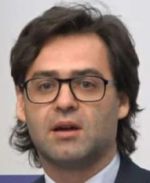 Popescu | 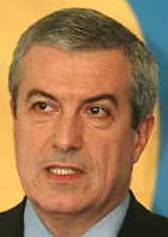 Popescu-T. |
Popescu-Tariceanu, Calin (Constantin Anton) (b. Jan. 14, 1952, Bucharest, Romania), prime minister of Romania (2004-08). He was also minister of industry and trade (1996-97), president of the Senate (2014-19), and a presidential candidate (2014).
Popiel, Karol (Michal) (b. Oct. 28, 1887, Rzochów [now part of Mielec], Austria [now in Poland] - d. June 6, 1977, Rome, Italy), justice minister of Poland in exile (1941-42). He was also minister of reconstruction of public administration (1943-44) and leader of the Labour Party (1945-46).
Popielawski, Stefan (b. 1880, Warcie, Sieradz county, Poland - d. Dec. 16, 1934, Lódz, Poland), governor of Bialostockie województwo (1920-24).
 Poplasen |
Popok, Yakov (Abramovich) (b. Oct. 2 [Sept. 20, O.S.], 1894, Khislavichi, Mogilyov province [now in Smolensk oblast], Russia - d. [executed] July 28, 1938, Moscow, Russian S.F.S.R.), first secretary of the Communist Party of the Turkmen S.S.R. (1930-37). He was also first secretary of the party committee of the Volga German A.S.S.R. (1937-38).
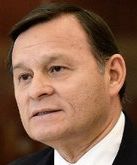 Popolizio |  Poposki | 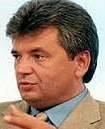 A. Popov |
Poposki, Nikola (b. Oct. 24, 1977, Skopje, Macedonia [now North Macedonia]), foreign minister of Macedonia (2011-17).
Popov, Anatoly (b. July 10, 1960, Sovetskoye village, Volgograd oblast, Russian S.F.S.R.), prime minister (2003-04) and acting president (2003) of Chechnya.
Popov, Blagoja (b. 1920 - d. 1992), chairman of the Executive Council of Macedonia (1974-82). He was also mayor of Skopje (1963-69).
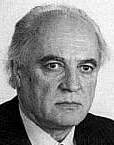 D. (I.) Popov |
Popov, Dimitur (Petrov) (b. March 29, 1912, Ihtiman, Bulgaria - d. May 20, 1982, Sofia, Bulgaria), finance minister of Bulgaria (1962-76). He was also mayor of Sofia (1952-61).
Popov, Gavriil (Kharitonovich) (b. Oct. 31, 1936), mayor of Moscow (1991-92).
Popov, Georgi (Ivanov) (b. May 28, 1889, Chernozem, Bulgaria - d. 1958, Sofia, Bulgaria), a deputy premier of Bulgaria (1946-50). He was also minister of social policy (1945-46) and forestry (1949-50).
Popov, Georgy (Mikhailovich) (b. Sept. 15 [Sept. 2, O.S.], 1906, Moscow, Russia - d. Jan. 14, 1968, Moscow), Soviet politician. He was mayor of Moscow (1944-50), first secretary of the party committees of Moscow city and Moscow oblast (1945-49), minister of urban construction (1949-51) and agricultural machine building (1951), and ambassador to Poland (1953-54).
Popov, Hristo (Georgiev) (b. Dec. 18, 1858, Sumnu, Ottoman Empire [now Shumen, Bulgaria] - d. Oct. 28, 1951, Sofia, Bulgaria), interior minister of Bulgaria (1915-16). He was also mayor of Sofia (1899-1901).
Popov, Hristo (Ivanov) (b. 1862, Stojakovo, Ottoman Empire [now in North Macedonia] - d. 1933, Sofia, Bulgaria), justice minister of Bulgaria (1913-18).
Popov, Ivan (Nikolov) (b. Dec. 8, 1907, Turnovo [now Veliko Turnovo], Bulgaria - d. Jan. 16, 2000), a deputy premier of Bulgaria (1971-74). He was also chairman of the State Committee for Science and Technical Progress (1962-71) and minister of machine building (1971-73).
Popov, Ivan (Vladimirov) (b. April 4, 1890, Svishtov, Bulgaria - d. [suicide] Oct. 29, 1944, Bucharest, Romania), foreign minister of Bulgaria (1940-42). He was also chargé d'affaires in Hungary (1933-35) and minister to Czechoslovakia (1936-37), Yugoslavia (1937-40), and Romania (1944).
Popov, Mihai (b. 1949, Chebruchi, Moldavian S.S.R. [now Cioburciu, Moldova]), foreign minister of Moldova (1994-97). He was also ambassador to Belgium (1993-94, 2002-04) and France (1997-2002).
Popovic, Koca (b. March 14, 1908, Belgrade, Serbia - d. Oct. 20, 1992, Belgrade), foreign minister (1953-65) and vice president (1966-67) of Yugoslavia.
Popovici, Mihai (b. Oct. 21, 1879, Brasov, Romania - d. May 7, 1966, Bucharest, Romania), finance minister (1920, 1927, 1928-29, 1930-31), interior minister (1930), and justice minister (1932-33) of Romania; brother-in-law of Constantin Sarateanu.
Popovics, Sándor (b. Oct. 22, 1862, Pest [now part of Budapest], Hungary - d. April 15, 1935, Budapest), finance minister of Hungary (1918). He was also governor of the Austro-Hungarian Bank (1909-18) and president of the Hungarian National Bank (1924-35).
Popovski, Dusan (b. March 5, 1930, Mrenoga, near Bitolj, Yugoslavia [now in North Macedonia] - d. 1998), president of the Federal Assembly of Yugoslavia (1988-89).
Popovski, Vlado (b. Sept. 21, 1941, Dolno Dupeni, near Prespa, Yugoslavia [now in North Macedonia]), defense minister (1992-94, 2001-02) and justice minister (1994-97) of Macedonia. He was also director of the Intelligence Agency (1995-99).
Popple, Alured (b. 1699 - d. bf. October 1746), governor of Bermuda (1738-44).
Popple, William (b. c. 1701 - d. Feb. 8, 1764), governor of Bermuda (1747-63); brother of Alured Popple.
Poptomov, Vladimir (Tomov) (b. Feb. 8, 1890, Belitsa, Bulgaria - d. May 1, 1952, Sofia, Bulgaria), foreign minister of Bulgaria (1949-50). He was also a deputy premier (1950-52).
Pora, Paul (Schmidt) (b. Dec. 6, 1946), finance minister of Papua New Guinea (1988-92). He was also minister of civil aviation and tourism (1994-95).
Poraz, Avraham (b. Aug. 9, 1945, Bucharest, Romania), interior minister of Israel (2003-04).
Porcile, Julio César (b. Nov. 30, 1927 - d. Dec. 9, 2013), labour minister of Argentina (1981-82).
Porciúncula, José Thomaz da (b. Dec. 25, 1854, Petrópolis, Rio de Janeiro, Brazil - d. Sept. 28, 1901), president of Maranhão (1890) and Rio de Janeiro (1892-94).
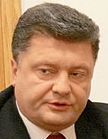 Poroshenko |
Porozhanov, Rumen (Andonov) (b. Aug. 17, 1964), finance minister of Bulgaria (2014).
Porras (Osores), Melitón F(rancisco) (b. Oct. 26, 1860, Lima, Peru - d. April 5, 1944, Lima), foreign minister (1895, 1898-99, 1908-10, 1919-20) and prime minister (1919) of Peru; son-in-law of Francisco Rosas Balcázar. He was also minister to Chile (1896-98), Ecuador (1902-05), Bolivia (1905-08), and Italy (1911-12).
Porras Barahona, Belisario (b. Nov. 27, 1856, Las Tablas, Colombia [now in Panama] - d. Aug. 28, 1942, Panama City, Panama), president of Panama (1912-16, 1918-20, 1920-24). He was also minister to the United States (1911, 1916-18), Peru (1924-25), the United Kingdom and France (1925-26, 1932-35), and Italy (1931-32).
Porras Barrenechea, Raúl (b. March 23, 1897, Pisco, Peru - d. Sept. 27, 1960, Lima, Peru), foreign minister of Peru (1958-60); nephew of Melitón F. Porras. He was also ambassador to Spain (1948-49) and president of the Senate (1957).
 Porritt |
Portales (y Palazuelos), Diego (José Víctor) (b. June 26, 1793, Santiago, Viceroyalty of Peru [now in Chile] - d. [assassinated] June 6, 1837, Valparaíso, Chile), interior minister (1830-31, 1835-37) and war and marine minister (1830, 1831-32, 1835-37) of Chile. He was considered the real power in the country from 1830.
Portalis, Joseph Marie, comte (b. Feb. 19, 1778, Aix [now Aix-en-Provence], France - d. Aug. 5, 1858, Passy [now part of Paris], France), foreign minister of France (1829). He was also justice minister (1828-29).
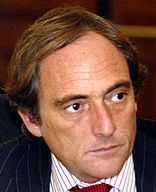 Portas |
Portela, Epifanio (b. May 29, 1855, Buenos Aires, Argentina - d. April 11, 1916, Rome, Italy), acting foreign minister of Argentina (1910). He was also minister to Brazil (1896-98), Chile (1899-1902), Spain (1902-05), the United States and Mexico (1905-10), and Italy and Switzerland (1911-16).
Portela, Francisco Flamarion (b. Oct. 13, 1954, Coreaú, Ceará, Brazil), governor of Roraima (2002-04).
Portela Valladares, Manuel (b. Jan. 31, 1867, Pontevedra, Spain - d. April 29, 1952, Bandol, Var, France), prime minister of Spain (1935-36). He was also minister of development (1923) and interior (1935, 1935-36) and governor-general of Catalonia (1935).
Portela y Möller, Guillermo (Francisco Leopoldo) (b. Nov. 1, 1886, Guanajay, Cuba - d. 1958), member of the Executive Commission of the Provisional Government of Cuba (1933).
Portella, Francisco (b. July 22, 1833, Oeiras, Piauí, Brazil - d. Dec. 22, 1913, Rio de Janeiro, Brazil), governor of Rio de Janeiro (1889-91).
Portella, Joaquim Pires Machado (b. March 12, 1827, Recife, Pernambuco, Brazil - d. Aug. 13, 1907, Rio de Janeiro, Brazil), acting president of Pernambuco (1857, 1861, 1862) and president of Pará (1871), Minas Gerais (1871-72), and Bahia (1872-73).
Portella, Manoel do Nascimento Machado (b. Dec. 25, 1833, Recife, Pernambuco, Brazil - d. Dec. 9, 1895, Rio de Janeiro, Brazil), acting president of Pernambuco (1869, 1871, 1872), president of Minas Gerais (1885-86) and Bahia (1888-89), and interior minister of Brazil (1887).
Porteous, George (b. April 7, 1903, Douglas, Lanarkshire, Scotland - d. Feb. 7, 1978, Saskatoon, Sask.), lieutenant governor of Saskatchewan (1976-78).
Porter, Albert G(allatin) (b. April 20, 1824, Lawrenceburg, Ind. - d. May 3, 1897, Indianapolis, Ind.), governor of Indiana (1881-85). He was also U.S. minister to Italy (1889-92).
Porter, Augustus Seymour (b. Jan. 18, 1798, Canandaigua, N.Y. - d. Sept. 18, 1872, Niagara Falls, N.Y.), mayor of Detroit (1838-39); nephew of Peter B. Porter.
Porter, David (James) (b. Aug. 3, 1953, Hobart, Tas.), acting governor of Tasmania (2014).
Porter, James D(avis) (b. Dec. 7, 1828, Paris, Tenn. - d. May 18, 1912, Paris, Tenn.), governor of Tennessee (1875-79). He was also U.S. minister to Chile (1893-94).
Porter, James M(adison) (b. Jan. 6, 1793, Selma, Pa. - d. Nov. 11, 1862, Easton, Pa.), U.S. secretary of war (1843-44).
Porter, Peter B(uell) (b. Aug. 4, 1773, Salisbury, Connecticut - d. March 20, 1844, Niagara Falls, N.Y.), U.S. secretary of war (1828-29).
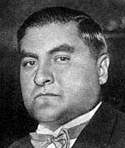 Portes Gil |
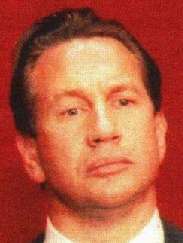 M. Portillo |
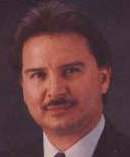 A. Portillo |
Portland, Henry Bentinck, (1st) Duke of, (1st) Marquess of Titchfield (b. 1682 - d. July 4, 1726), governor of Jamaica (1722-26). He succeeded as (2nd) Earl of Portland in 1709 and was created duke and marquess in 1716.
Portland, William Henry Cavendish Cavendish-Bentinck, (3rd) Duke of, (3rd) Marquess of Titchfield (b. April 14, 1738, Bulstrode, Buckinghamshire, England - d. Oct. 30, 1809, Bulstrode), lord lieutenant of Ireland (1782) and British prime minister (1783, 1807-09) and home secretary (1794-1801); grandson of Henry Bentinck, Duke of Portland. He was also lord president of the council (1801-05). He succeeded as duke in 1762.
Portland, William Henry Cavendish-Scott-Bentinck, (4th) Duke of, (4th) Marquess of Titchfield (b. June 24, 1768, London, England - d. March 27, 1854, Welbeck, Nottinghamshire, England), British lord privy seal (1827) and lord president of the council (1827-28); son of William Henry Cavendish Cavendish-Bentinck, Duke of Portland. He added "Scott" (his wife's name) to his name in 1795 and succeeded as duke in 1809.
Porto, Avelino (José) (b. Nov. 5, 1935), health minister of Argentina (1991).
Pôrto, Dorval Pires (b. July 8, 1878, Porto Alegre, Brazil - d. Feb. 8, 1954, Rio de Janeiro, Brazil), governor of Amazonas (1930). He was also mayor of Manaus (1914-16).
Porto, Francisco de Souza (b. 1885 - d. July 10, 1964), acting president of Sergipe (1927). He was also mayor of Aracaju (1933-34).
Porto, Terêncio Furtado de Mendonça (b. Dec. 6, 1914 - d. Dec. 12, 1970), governor of Amapá (1962-64).
Porto Santo, António de Saldanha da Gama, conde de (b. Feb. 5, 1778, Lisbon, Portugal - d. July 23, 1839, Lisbon), governor of Maranhão (1804-06) and Angola (1807-10) and foreign minister of Portugal (1825-26); grandson of João de Saldanha da Gama; brother of João de Saldanha da Gama Mello Torres Guedes de Brito, conde da Ponte. He was also minister to Russia (1815-20) and Spain (1820, 1823-25). He was created count in 1823.
Portocarrero, Bernabé, finance minister (1865-67, 1888-89) and war and interior minister (1868) of Nicaragua.
Portocarrero Lasso de la Vega, Melchor, conde de Monclova (b. 1636 - d. Sept. 15, 1705, Lima, Peru), viceroy of Peru (1689-1705).
Portugal, Clotário (de Macedo) (b. June 8, 1881, Campo Largo, Paraná, Brazil - d. Feb. 9, 1947, Curitiba, Paraná), federal interventor in Paraná (1945-46).
Portugal (Escobedo), Julio Ernesto (b. 1894 - d. June 18, 1972, Lima, Peru), prime minister of Peru (1946-47). He was also mayor of Arequipa (1939-41) and health minister (1946-47).
Portugal, Thomaz Antonio de Villa-Nova (b. Sept. 18, 1755, Tomar, Portugal - d. May 16, 1839, Lisbon, Portugal), principal minister and finance minister of Brazil (1817-21). He was also minister of foreign affairs and war (1817-20).
Portuondo Tamayo, Rafael (María de la Caridad Benito) (b. 1840 - d. July 15, 1908), chairman of the Executive Council of the Assembly of Representatives of the Cuban Revolution (1898-99).
Porumbaru, Emanoil (b. 1845, Bucharest, Walachia [now in Romania] - d. Oct. 11, 1921, Bucharest), foreign minister of Romania (1914-16). He was also minister of public works (1896-97, 1903-04) and president of the Senate (1916-18).
Posada de la Peña, Francisco (b. 1929 - d. March 10, 1998, Barranquilla, Colombia), justice minister of Colombia (1965-66). He was also governor of Atlántico (1963-65), ambassador to the United States (1986-87), Chile (1992-94), the Netherlands (1994), and Venezuela (1994-96), and minister of labour (1990-92).
Posada Díaz, Jaime (b. Dec. 18, 1924, Socorro, Santander, Colombia - d. July 2, 2019, Bogotá, Colombia), Colombian politician. He was minister of national education (1961-62) and governor of Cundinamarca (1987-90).
Posada Herrera, José (b. March 31, 1814, Llanes, Oviedo province, Spain - d. Sept. 7, 1885, Llanes), prime minister of Spain (1883-84). He was also interior minister (1858-63, 1865-66), ambassador to the Papal State (1868-69), and president of the Congress of Deputies (1876-78, 1881-83).
Posada Moreno, Jesús María (b. April 4, 1945, Soria, Spain), president of the Junta of Castilla-León (1989-91). He was also Spanish minister of agriculture, fisheries, and food (1999-2000) and president of the Congress of Deputies (2011-16).
Posadowsky-Wehner, Arthur Adolf Graf von, Freiherr von Postelwitz (b. June 3, 1845, Glogau, Prussia [now Glogów, Poland] - d. Oct. 23, 1932, Naumburg, Prussia [now in Sachsen-Anhalt], Germany), finance minister (1893-97) and vice chancellor and interior minister (1897-1907) of Germany.
Posibeyev, Grigory (Andreyevich) (b. Oct. 23, 1935, Mari-Malmyzh, Kirov oblast, Russian S.F.S.R. - d. June 9, 2002, Kingisepp, Leningrad oblast, Russia), first secretary of the Communist Party committee (1981-91) and chairman of the Supreme Soviet (1990) of the Mari A.S.S.R.
Poska, Jaan (b. Jan. 24, 1866, Laiuse municipality, Russia [now in Estonia] - d. March 7, 1920, Tallinn, Estonia), foreign minister of Estonia (1918-19). He was also mayor of Tallinn (1913-17) and justice minister and deputy prime minister (1918).
Posnett, Sir Richard Neil (b. July 19, 1919, Kotagiri, India - d. May 11, 2009), governor of British Honduras/Belize (1972-76) and Bermuda (1981-83); knighted 1979. He was also British high commissioner to Uganda (1979).
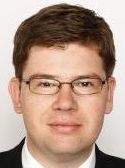 Pospísil |
Poss, Mary (Canada) (b. Oct. 25, 1951, Dallas, Texas), acting mayor of Dallas (2001-02).
Posse, Arvid (Mauritz Arvidsson) greve (b. Jan. 5, 1792, Bergunda socken [now part of Växjö municipality], Kronoberg, Sweden - d. July 22, 1850, Göteborg, Sweden), governor of Skaraborg (1824-31) and prime minister for justice of Sweden (1840, 1846-48); brother of Fredrik greve Posse; great-great-grandson of Knut greve Posse.
Posse, Arvid Rutger Fredriksson greve (b. Feb. 17, 1820, Kropp, Malmöhus [now in Skåne], Sweden - d. April 24, 1901, Stockholm, Sweden), prime minister (1880-83) and finance minister (1880-81) of Sweden; son of Fredrik greve Posse; nephew of Arvid greve Posse and Knut Axel greve Posse. He was also speaker of the Second Chamber of the Riksdag (1876-80).
Posse, Fredrik (Salomon) greve (b. Feb. 27, 1785, Konungsund socken, Östergötland, Sweden - d. April 27, 1853, Närlunda, Malmöhus [now part of Helsingborg, Skåne], Sweden), governor of Malmöhus (1834-51); great-great-grandson of Knut greve Posse.
Posse, Knut greve (b. 164..., Forshem socken, Skaraborg [now in Västra Götaland], Sweden - d. Aug. 7, 1714), governor of Stockholm city (1705-14). He was made friherre (baron) in 1696 and greve (count) in 1706.
Posse, Knut Axel greve (b. Sept. 19, 1796, Bergunda socken [now part of Växjö municipality], Kronoberg, Sweden - d. July 27, 1856, Copenhagen, Denmark), governor of Kristianstad (1852-56); brother of Fredrik greve Posse and Arvid greve Posse; great-great-grandson of Knut greve Posse.
Posse af Säby, Mauritz greve (b. 1712, Lübeck [Germany] - d. July 19, 1787, Stockholm, Sweden), governor of Älvsborg (1763-69); son of Nils friherre Posse af Säby. He was also Swedish minister to Russia (1752-63). He was raised from friherre (baron) to greve (count) in 1771.
Posse af Säby, Nils (Mauritzson) friherre (b. Feb. 21, 1660, Geneva, Switzerland - d. April 12, 1723), governor of Gotland (1711-16) and Göteborg och Bohus (1719-23).
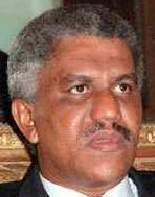 Posser |
Possolo, Lourenço Germack (b. April 25, 1779 - d. 18...), governor-general of Angola (1844-45).
Postelnicu, Tudor (b. Oct. 13, 1931, Provita de Jos, Prahova county, Romania - d. Aug. 12, 2017, Bucharest, Romania), interior minister of Romania (1987-89). He was also first secretary of the party committee and chairman of the executive committee of the Buzau county (1976-78) and chief of the State Security Department (Securitate) (1978-87).
Posthuma, Folkert (Evert) (b. May 20, 1874, Leeuwarden, Netherlands - d. [assassinated] June 3, 1943, Vorden, Gelderland, Netherlands), Dutch politician. He was minister of agriculture, industry, and trade (1914-18).
Postiaux, Louis Joseph (b. Aug. 15, 1882, Antwerp, Belgium - d. 1948), acting governor of Ruanda-Urundi (1929-30) and governor of Katanga (1931-32).
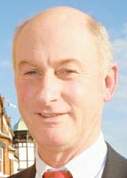 Poston |  Potapenko |
Postovalov, Sergey (Osipovich) (b. 1907, Kislyanskoye, Tomsk province, Russia - d. March 17, 1983, Moscow, Russian S.F.S.R.), chairman of the Executive Committee of Crimea oblast (1949-52). He was also first secretary of the party committees of Cherkess autonomous oblast (1948-49) and Kaluga oblast (1952-61).
Posyet, Konstantin (Nikolayevich) (b. Jan. 2, 1820 [Dec. 21, 1819, O.S.], Helsingfors [now Helsinki], Finland - d. May 8 [April 26, O.S.], 1899, St. Petersburg, Russia), Russian minister of communications (1874-88).
Potác, Svatopluk (b. March 24, 1925, Tupec, Czechoslovakia [now in Czech Republic] - d. Sept. 5, 2014), a deputy premier of Czechoslovakia (1981-88). He was also general manager (1969-71) and chairman (1971-81, 1988-89) of the State Bank and chairman of the State Planning Commission (1981-88).
Potanin, Vladimir (Olegovich) (b. Jan. 3, 1961, Moscow, Russian S.F.S.R.), a first deputy prime minister of Russia (1996-97).
Potape, Francis (Mulungu) (b. June 16, 1972), governor of Hela (2015-16, 2016-17). He was also Papua New Guinean minister of climate change (2010), transport and administrative services (2010-11), and petroleum and energy (2011, 2011-12 [Somare government]).
Potapenko, Valery (Nikolayevich) (b. 1958), head of administration of Nenets autonomous okrug (2006-09).
Potapov, Aleksandr (Lvovich) (b. Sept. 27 [Sept. 15, O.S.], 1818, Semidubrovnoye village, Voronezh province, Russia - d. Nov. 5 [Oct. 24, O.S.], 1886, St. Petersburg, Russia), governor-general of Vilna, Kovno, and Grodno (1868-74). He was also ataman of the Don Cossack Host (1866-68) and chief of gendarmes (1874-76).
Potapov, Leonid (Vasilyevich) (b. July 4, 1935, Uakit, Buryat A.S.S.R., Russian S.F.S.R. - d. Nov. 12, 2020, Ulan-Ude, Buryatia, Russia), chairman of the Supreme Council (1991-94) and president (1994-2007) of Buryatia. He was also chairman of the Executive Committee of Mary oblast (Turkmen S.S.R.) (1987-90) and first secretary of the Communist Party committee of the Buryat A.S.S.R. (1990-91).
Potapov, Yakov (Fyodorovich) (b. 1890, Dodz, Vologda province, Russia - d. [executed] 1942), executive secretary of the Communist Party committee of Komi autonomous oblast (1921-22).
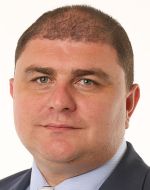 Potomsky |
Potter, Louis (Joseph Antoine) de (b. 1786 - d. 1859), member of the Provisional Government of Belgium (1830).
Potter, Marie-Louise (Cecile) (b. March 15, 1959, Seychelles), Seychellois diplomat. She was permanent representative to the United Nations and ambassador to the United States (2012-17).
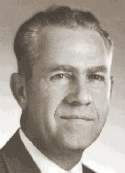 W.E. Potter |
Pottier, Bernard (b. July 11, 1942, Vernon, Eure, France), French resident commissioner of the New Hebrides (1978). He also served as ambassador to Myanmar (1994-99), Laos (2002-04), and Luxembourg (2004-07).
Pottinger, Sir Henry (Eldred), (1st) Baronet (b. Oct. 3, 1789, Mount Pottinger, near Belfast, Ireland [now in Northern Ireland] - d. March 18, 1856, Malta), administrator (1841-43) and governor (1843-44) of Hong Kong and governor of the Cape Colony (1847) and Madras (1848-54). He was created a baronet in 1840.
Potulov, Ippolit (Mikhailovich) (b. 1825 - d. ...), governor of Orenburg (1856-58).
Potulov, Lev (Vladimirovich) (b. May 24 [May 12, O.S.], 1877 - d. af. 1931), governor of Kutaisi (1914-16) and Baku (1916-17); grandson of Ippolit Potulov.
Potyomkin, Vladimir (Petrovich) (b. Oct. 19 [Oct. 7, O.S.], 1874, Tver, Russia - d. Feb. 23, 1946, Moscow, Russian S.F.S.R.), Soviet politician. He was Soviet minister to Greece (1929-32) and ambassador to Italy (1932-34) and France (1934-37) and people's commissar of education of the Russian S.F.S.R. (1940-46).
Potyomkin-Tavrichesky, Knyaz (Prince) Grigory (Aleksandrovich), in English commonly rendered Potemkin (b. Sept. 24 [Sept. 13, O.S.], 1739, Chizhovo, Smolensk province, Russia - d. Oct. 16 [Oct. 5, O.S.], 1791, near Radenii Vechi, Moldavia [now in Moldova]), Russian statesman. He entered the Russian Horse Guards in 1755 and took part in the 1762 coup that made Yekaterina II empress, attracting her notice. Having distinguished himself in the Turkish War of 1768-74, he became Yekaterina's favourite in 1774; they may also have secretly married. He was made governor-general of Novorossiya (1774-83), Azov (1775-83), and Astrakhan (1776-83) provinces, Saratov (1780-83), Yekaterinoslav (1783-91), and Kharkov (1787-91) viceroyalties, and Tavricheskoye oblast (1784-91). He was an able administrator and constructed a fleet in the Black Sea. He gained for Russia the Crimea and the north coast of the Black Sea, and he founded Sevastopol (in the Crimea), Nikolayev (now Mykolayiv, Ukraine), and Yekaterinoslav (now Dnipro, Ukraine). In 1784 he became field marshal and president of the Military Collegium. He also pursued a "Greek project" aimed at restoring the Byzantine Empire under Yekaterina's grandson Konstantin, but the scheme did not succeed. Yekaterina's tour of the south in 1787 was a triumph for him, for he disguised all the weak points of his administration; the apocryphal tale of his erecting artificial villages to be seen by the empress in passing is the origin of the term "Potemkin village" to denote any pretentious facade covering up an unimpressive reality. He was made Graf (count) in 1775 and a Reichsfürst of the Holy Roman Empire in 1776; Yekaterina made him svetleyshy knyaz with the added name Tavrichesky (i.e., prince of Tauris, the ancient name of the Crimea) in 1787. In the Second Turkish War (1787-92) he headed the army, but died while on his way to Iasi, Moldavia, to conduct the peace negotiations as chief Russian plenipotentiary.
Poubelle, Eugène René (b. April 15, 1831, Caen, France - d. July 16, 1907, Paris, France), prefect of Seine département (1883-96). He was also prefect of Charente (1871-72), Isère (1872-73), Corse (1873), Doubs (1878-79), and Bouches-du-Rhône (1879-83) and ambassador to the Holy See (1896-98).
Poudel, Bishnu (Prasad), also spelled Paudel (b. Nov. 20, 1959, Syanja, Nepal), defense minister (2011), finance minister (2015-16, 2020-21, 2022- ), and home affairs minister (2021) of Nepal. He has also been minister of youth, sports, and culture (1997) and water resources (2008-09) and a deputy prime minister (2021, 2022- ).
Poudel, Ram Chandra, also spelled Paudel (b. Oct. 14, 1944, Bahun Pokhara, Nepal), president of Nepal (2023- ). He was also minister of local development (1991-92, 2000), agriculture (1992-94), information and communication (2000), home affairs (2000-01), and peace and reconstruction (2007-08), speaker of the House of Representatives (1994-99), and deputy prime minister (2000-01).
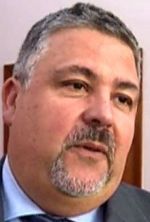 Pouget |
Poujade, Pierre (Marie) (b. Dec. 1, 1920, Saint-Céré, Lot, France - d. Aug. 27, 2003, La Bastide-l'Évêque, Aveyron, France), French politician. He long saw himself as the defender of the "little man," creating in 1953 the Union for the Defense of Merchants and Craftsmen (UDCA), which he would lead for 30 years. He gained fame that same year for leading a group of shopkeepers in a revolt against government tax inspectors, marking the true start of the Poujadist movement, which at the height of its popularity claimed half a million members. In 1956, his political party polled 11.6% and won 52 seats in the National Assembly, notably allowing then 27-year-old Jean-Marie Le Pen, later the leader of the extreme-right National Front party, to enter parliament. Two years later, with the creation of the Fifth Republic, Poujade's party was swept out of office. His movement faded, torn by internal disputes and disagreements over France's participation in Western European affairs. His last fling was to put forward candidates in the European elections of 1979, but they received less than 1% of votes cast. In the mid-1980s, at the end of his political career, he was named by then Socialist president François Mitterrand to serve as an advisor on his Economic and Social Council, a post he held for five years.
Poukré-Kono, Fernand (b. 1955, Fort-Lamy [now N'Djamena], Chad), Central African Republic diplomat. He has been chargé d'affaires (1996-97, 2002-03) and permanent representative (2003-11) to the United Nations and ambassador to Ethiopia (after 2011).
Poulet, Georges (Marie Joseph) (b. April 14, 1914, Le Fay, near Parnac, Indre, France - d. Oct. 7, 2008), acting governor of New Caledonia (1961), governor of Saint-Pierre and Miquelon (1965-67), and high commissioner of the Comoros (1973-74).
Poulet, Georges (Virgile) (b. Nov. 7, 1859, Paris, France - d. 19...), acting governor of French Guinea (1907-08, 1910), lieutenant governor of Gabon (1911-12), acting governor-general of French Equatorial Africa (1913), and governor of Martinique (1914-15).
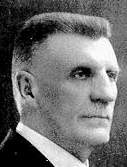 Poullet | 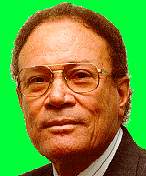 Pourier |
Poungui, Ange Édouard (b. 1942, Bouenza region, Middle Congo [now Congo (Brazzaville)]), finance minister (1971-73), vice president (1972-73), and prime minister (1984-89) of Congo (Brazzaville). He was also minister of planning (1973-76).
Pourier, Miguel (Arcangel) (b. Sept. 29, 1938, Rincon, Bonaire - d. March 24, 2013, Curaçao), prime minister of the Netherlands Antilles (1979, 1994-98, 1999-2002).
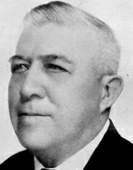 Pouvanaa |
Pouyer-Quertier, Augustin (Thomas) (b. Sept. 2, 1820, Étoutteville-en-Caux, Seine-Inférieure [now Étoutteville, Seine-Maritime], France - d. April 2, 1891, Rouen, Seine-Inférieure [now Seine-Maritime]), finance minister of France (1871-72).
Pouzet, Richard (Georges Jean) (b. July 5, 1904, Rochefort-sur-Mer, Charente-Inférieure [now Charente-Maritime], France - d. June 1, 1971), acting prefect of Seine département (1958). He was also prefect of the départements of Mayenne (1946-48) and Sarthe (1949-50).
Povalo-Shveykovsky, Aleksandr (Nikolayevich) (b. 1834 - d. 1903), governor of Fergana oblast (1893-98).
Povalyukhin, I. (I.), executive secretary of the Communist Party committee of the Kabardino-Balkar autonomous oblast (1928). He was also executive secretary of the party committee of Vladikavkaz city (1930-31).
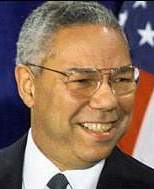 Colin Powell |
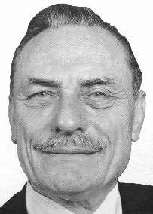 E. Powell |
Powell, Jerome (Hayden), byname Jay Powell (b. Feb. 4, 1953, Washington, D.C.), chairman of the U.S. Federal Reserve Board (2018- ).
Powell, John Wesley (b. March 24, 1834, Mount Morris, N.Y. - d. Sept. 23, 1902, Haven, Maine), director of the U.S. Geological Survey (1881-94). He was also director of the U.S. Geographical and Geological Survey of the Rocky Mountain Region (1869-79).
Powell, Samuel S. (b. Feb. 16, 1815, New York City - d. Feb. 6, 1879, Brooklyn, N.Y.), mayor of Brooklyn (1857-60, 1872-73).
Power, Charles Gavan, byname Chubby Power (b. Jan. 18, 1888, Sillery, Que. - d. May 30, 1968, Québec, Que.), acting defence minister of Canada (1940). He was also minister of pensions and national health (1935-39), postmaster general (1939-40), and minister of national defence for air (1940-44).
Power, Patrick, byname Paddy Power (b. Nov. 19, 1928, Caragh, County Kildare, Ireland - d. Aug. 14, 2013, Caragh), defence minister of Ireland (1982). He was also minister of fisheries and forestry (1979-81) and trade, commerce, and tourism (1982).
Power, Samantha (Jane) (b. Sept. 21, 1970, London, England), U.S. ambassador to the United Nations (2013-17).
Powis, Edward Clive, (1st) Earl of (b. March 7, 1754, London, England - d. May 16, 1839, London), governor of Madras (1798-1803); son of Robert Clive, Baron Clive of Plassey. He was nominated as lord lieutenant of Ireland in 1805, but did not take up the post. He succeeded as (2nd) Baron Clive of Plassey in 1774 and was created Baron Clive of Walcot in 1794 and Baron Powis, Baron Herbert of Chirbury, Viscount Clive of Ludlow, and Earl of Powis in 1804.
Powles, Michael (John) (b. July 24, 1939), New Zealand diplomat. He was high commissioner to Fiji (1980-82), ambassador to Indonesia (1982-86) and China (1989-93), and permanent representative to the United Nations (1996-2001).
Poyarkov, Mikhail (Petrovich), governor of Yelizavetpol (1916-17).
Poyen-Bellisle, Louis de (d. 1937, Nérac, Lot-et-Garonne, France), acting lieutenant governor of Chad (1930, 1932, 1933-34).
Pozdnyakov, Dmitry (Aleksandrovich) (b. June 27, 1980, Semiley, Mordovian A.S.S.R., Russian S.F.S.R.), prime minister of Mordovia (2023- ).
Pozela, Vladas (b. April 9, 1879, Steigviliai, Russia [now in Lithuania] - d. Sept. 21, 1960, Adelaide, S.Aus.), interior minister of Lithuania (1926).
Pozen, Valery (Mikhailovich) (b. 1832 - d. ...), governor of Baku (1876-81); brother-in-law of Nikolay (Mikhailovich) Muravyov.
Pozgalev, Vyacheslav (Yevgenyevich) (b. Nov. 15, 1946, P'yongyang, Korea [now in North Korea]), head of the administration (1996) and governor (1996-2011) of Vologda oblast. He was also chairman of the Executive Committee (1990-91) and mayor (1991-96) of Cherepovets.
Pozner, Viktor (Markovich) (b. Nov. 8, 1877, Grozny [now in Chechnya], Russia - d. March 31, 1957, Moscow, Russian S.F.S.R.), executive secretary of the Communist Party of the Turkestan A.S.S.R. (1921).
Pozo (Crespo), Mauricio (b. Jan. 18, 1959, Quito, Ecuador), economy and finance minister of Ecuador (2003-04, 2020- ).
 Pozo Malo | 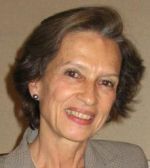 Pozzo di Borgo |
Pozo Rubio, Raimundo Fernández Villaverde (y García del Rivera), marqués de (b. Jan. 20, 1848, Madrid, Spain - d. July 15, 1905, Madrid), prime minister of Spain (1903, 1905). He was also minister of interior (1885, 1892), justice (1890-91), finance (1899-1900, 1902-03), and overseas (1899).
Pozzo di Borgo, Cécile (Marie Thérèse), née Mouton-Brady (b. Jan. 4, 1952, Paris, France), administrator-superior of the French Southern and Antarctic Lands (2014-18). She was French ambassador to the Dominican Republic (2005-08) and Peru (2008-11) and prefect of Aveyron département (2011-14).
Prabowo, Hadi (b. April 3, 1960, Klaten, Jawa Tengah, Indonesia), acting governor of Kalimantan Tengah (2015-16) and Sumatera Selatan (2018).
Pracha Guna-Kasem (b. Dec. 29, 1934, Bangkok, Siam [now Thailand] - d. Oct. 8, 2009), Thai diplomat. He was permanent representative to the United Nations (1975-80) and ambassador to France and Algeria (1985-87).
 Prachuab |
Prada (Gil), (Hernando) Alfonso (b. Oct. 6, 1964, Bogotá, Colombia), interior minister of Colombia (2022- ). He was also secretary-general of the presidency (2017-18).
Pradel, Seymour (b. July 10, 1876, Jacmel, Haiti - d. April 25, 1943, Port-au-Prince, Haiti), interior minister of Haiti (1912-13, 1913-14, 1915).
Pradhan, Bhimsen Das, defense minister of Nepal (2017-18).
Pradhan, Lyonpo Om (b. Oct. 6, 1946, Neoly, Bhutan), Bhutanese politician. He was permanent representative to the United Nations (1980-84, 1998-2003), ambassador to India, Nepal, and the Maldives (1984-85), and minister of trade and industry (1989-98).
Pradhan, R(amchandra) D(attatraya) (b. June 27, 1928 - d. July 31, 2020, Mumbai, India), governor of Arunachal Pradesh (1987-90) and acting governor of Bihar (1989).
Pradhan, Sahana (b. July 15, 1932, Kathmandu, Nepal - d. Sept. 22, 2014, Balkhu, Nepal), foreign minister of Nepal (2007-08). Widow of Pushpa Lal Shrestha, who established the Nepal Communist Party in 1949, she became actively involved in women's rights and the democratic movement to overthrow the Rana regime. After the banning of political parties in 1960, she took part from time to time in the movement for the restoration of democracy. She was jailed for a few months for her political involvements. During the 1990 people's movement, she was the chairman of the United Left Front that allied with the Nepali Congress to launch the agitation, which restored multiparty democracy. She became minister for industry and commerce in the interim government under the prime ministership of Krishna Prasad Bhattarai in 1990-91. Later she became minister for forest and soil conservation (1997) and women and social welfare (1997). A Standing Committee member of the Communist Party of Nepal (Unified Marxist-Leninist), she became Nepal's first woman foreign minister in 2007.
Pradilla (Rueda), Antonio María (b. Dec. 6, 1822, Barichara, Colombia - d. Dec. 12, 1878, Bogotá, Colombia), acting president of Santander (1860, 1860) and foreign minister of Colombia (1864, 1869-70). He was also minister to Venezuela (1861-62) and the United Kingdom (1862-64).
Prado, Antônio (da Silva), Júnior (b. April 5, 1880, São Paulo, Brazil - d. Nov. 17, 1955, São Paulo), prefect of the Distrito Federal (1926-30); son of Antonio da Silva Prado.
Prado, Antonio Caio da Silva (b. June 13, 1853, São Paulo, Brazil - d. May 25, 1889, Fortaleza, Ceará, Brazil), president of Alagoas (1887-88) and Ceará (1888-89); brother of Antonio da Silva Prado.
Prado, Antonio da Silva (b. Feb. 25, 1840, São Paulo, Brazil - d. April 23, 1929, Rio de Janeiro, Brazil), foreign minister of Brazil (1888). He was also minister of agriculture (1885-87, 1888-89) and mayor of São Paulo (1899-1911).
Prado, Luiz da Silva (b. 1812, Rosário [now Rosário do Sul], Rio Grande do Sul, Brazil - d. May 19, 1870), acting president of Mato Grosso (1870).
Prado, Manoel José de Menezes (b. Feb. 6, 1844, Rosário do Catete, Sergipe, Brazil - d. March 1, 1897, Rio de Janeiro, Brazil), president of Espírito Santo (1876-77) and Piauí (1885-86).
Prado, Manoel Martiniano (b. Oct. 16, 1902 - d. Sept. 2, 1967), governor of Acre (1935-37).
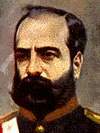 M.I. Prado |
Prado Amor, Julio (b. Aug. 26, 1870, Valparaíso, Chile - d. 1951), justice (and education) minister of Chile (1919).
Prado Vallejo, Julio (b. July 3, 1924, Quito, Ecuador - d. Oct. 20, 2006, Quito), foreign minister of Ecuador (1967-68).
Prado y Ugarteche, (Max) Javier (b. Dec. 3, 1871, Lima, Peru - d. June 25, 1921, Lima), foreign minister (1905-06) and prime minister and interior minister (1910) of Peru; son of Mariano Ignacio Prado. He was also minister to Argentina (1904).
Prado y Ugarteche, Jorge (Antonio) (b. May 13, 1887, Lima, Peru - d. July 29, 1970, Lima), prime minister and interior minister of Peru (1933); brother of Javier Prado y Ugarteche. He was a presidential candidate in 1936.
Prado y Ugarteche, Manuel (Carlos Antonio) (b. April 21, 1889, Lima, Peru - d. Aug. 14, 1967, Paris, France), president of Peru (1939-45, 1956-62); son of Mariano Ignacio Prado; brother of Javier Prado y Ugarteche and Jorge Prado y Ugarteche. He was also president of the Central Reserve Bank (1934-39).
Prados, Camillo Maria Ferreira Armond, barão, visconde e conde de (b. Aug. 7, 1815, Barbacena, Minas Gerais, Brazil - d. Aug. 14, 1882, Rio de Janeiro, Brazil), president of Rio de Janeiro (1878). He was also president of the Chamber of Deputies of Brazil (1864-66, 1878-81). He was made baron in 1861, viscount in 1871, and count in 1881.
Praia Grande, Caetano Pinto de Miranda Montenegro, visconde (de Villa Real) da (baptized April 25, 1796, Rio de Janeiro, Brazil - d. Feb. 11, 1851, Rio de Janeiro), president of Espírito Santo (1829-30) and Alagoas (1830-31); son of Caetano Pinto de Miranda Montenegro, visconde e marquês da Praia Grande. He was made viscount in 1828.
Praia Grande, Caetano Pinto de Miranda Montenegro, visconde e marquês (de Villa Real) da (b. Sept. 16, 1748, Lamego, Portugal - d. Jan. 11, 1827, Rio de Janeiro, Brazil), governor of Mato Grosso (1796-1803) and Pernambuco (1804-17) and minister of finance (1822) and justice (1822-23) of Brazil. He was made viscount in 1825 and marquess in 1826.
 Prajadhipok |
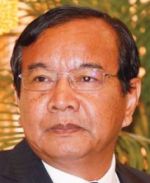 Prak |
Prakasa, Sri (b. Aug. 3, 1890, Benares [now Varanasi], India - d. June 23, 1971), governor of Assam (1949-50), Madras (1952-56), Bombay (1956-60), and Maharashtra (1960-62). He was also Indian high commissioner to Pakistan (1947-49) and minister of commerce (1950-51) and natural resources and scientific research (1951-52).
 K. Pramoj |
 S. Pramoj |
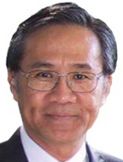 Pramudwinai |
Pranowo, Ganjar (b. Oct. 28, 1968, Karanganyar, Jawa Tengah, Indonesia), governor of Jawa Tengah (2013-18).
Prapiestis, Jonas (b. Aug. 2, 1952, Kupiskis, Lithuanian S.S.R.), justice minister of Lithuania (1992-96).
Prasad, Baleshwar (b. Jan. 1, 1914, Chapra, Saran district, Bihar, India - d. 1996), dewan of Sikkim (1959-63), chief commissioner (1963-69) and lieutenant governor (1969-70) of Manipur, chief commissioner of Tripura (1971-72), and lieutenant governor of Delhi (1972-74). He was also Indian ambassador to Burma (1970-71).
 G. Prasad |
Prasad, Mahabir, also spelled Mahavir (b. Nov. 11, 1939 - d. Nov. 28, 2010, New Delhi, India), governor of Haryana (1995-2000) and Himachal Pradesh (1995, 1996-97). He was also Indian minister of small-scale, agro-, and rural industries (2004-07) and micro, small, and medium enterprises (2007-09).
Prasad, Mata (b. Oct. 11, 1925, Machhali Shahar, Jaunpur district, United Provinces of Agra and Oudh [now in Uttar Pradesh], India - d. Jan. 20, 2021, Lucknow, India), governor of Arunachal Pradesh (1993-99).
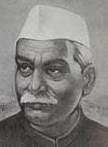 R. Prasad |
Prasad, Ravi Shankar (b. Aug. 30, 1954, Patna, Bihar, India), law and justice minister of India (2014, 2016-21). He was also minister of state (independent charge) for information and broadcasting (2003-04) and minister of communications (2014-16, 2019-21), information technology (2014-21), and electronics (2016-21).
Prasad, Satyendra, Fijian diplomat. He has been permanent representative to the United Nations (2018- ).
Prasad, Siddheshwar (b. June 19, 1929, Bind, Bihar, India), governor of Tripura (1995-2000).
Prasad, Sukhdev (b. March 20, 1921, Piparpanti village, Gorakhpur district, United Provinces of Agra and Oudh [now in Uttar Pradesh], India - d. May 18, 1995), governor of Rajasthan (1988-90).
Prasada, Shankar (b. March 11, 1905 - d. ...), chief commissioner of Ajmer (1947-48) and Delhi (1948-54).
Praslin, César Gabriel de Choiseul-Chevigny, duc de (b. Aug. 14, 1712, Paris, France - d. Nov. 15, 1785, Paris), foreign minister of France (1761-66). He was also ambassador to Austria (1758-61) and minister of marine and colonies (1766-70). He was created duc de Praslin in 1762.
Prasong Soonsiri (b. Aug. 11, 1927), foreign minister of Thailand (1992-94).
Prat Carvajal, Arturo (b. March 6, 1878, Valparaíso, Chile - d. April 26, 1942, Santiago, Chile), finance minister of Chile (1916-17, 1931).
Prat Echaurren, Jorge (b. April 24, 1918, Viña del Mar, Chile - d. Dec. 20, 1971, Curacaví, Chile), finance minister of Chile (1954-55); son of Arturo Prat Carvajal.
Prat-Gay, Alfonso (b. Nov. 24, 1965, Buenos Aires, Argentina), finance minister of Argentina (2015-16); nephew of Gastón de Prat Gay. He was also president of the Central Bank (2002-04).
Prat Gay, Gastón (María) de (b. Dec. 28, 1934, Tucumán, Argentina), Argentinian diplomat. He was ambassador to the Soviet Union/Russia (1989-92) and Estonia and Latvia (1992).
Prats (Pérez), Belisario (Matías) (b. Feb. 24, 1827, Santiago, Chile - d. Sept. 14, 1897, Santiago), foreign minister of Chile (1870-71). He was also minister of interior (1870-71, 1878-79, 1890) and war and navy (1876-77), president of the Chamber of Deputies (1872-75), and president of the Supreme Court (1885).
Prats Bello, (Martín) Belisario (b. Oct. 28, 1857 - d. July 2, 1929, Santiago, Chile), war and marine minister of Chile (1906, 1907-08); son of Belisario Prats. He was also minister of industry and public works (1897).
Prats González, Carlos (José) (b. Feb. 2, 1915, Talcahuano, Chile - d. [assassinated] Sept. 30, 1974, Buenos Aires, Argentina), interior minister (1972-73) and defense minister (1973) of Chile.
Pratt, Cynthia (Alexandria), née Moxey, byname Mother Pratt (b. Nov. 5, 1945, Nassau, Bahamas), deputy prime minister and minister of national security of The Bahamas (2002-07).
Pratt, Sir John (b. 1657, Oxford, England - d. Feb. 24, 1725, London, England), British acting chancellor of the exchequer (1721); knighted 1714. He was lord chief justice (1718-25).
Pratt, Solomon Athanasius James, byname Jolliboy (b. Dec. 25, 1921, Bathurst [now Banjul], Gambia - d. Dec. 28, 2017, London, England), foreign minister of Sierra Leone (1971-73).
Pratt, Thomas G(eorge) (b. Feb. 18, 1804, Georgetown, Md. [now part of Washington, D.C.] - d. Nov. 9, 1869, Baltimore, Md.), governor of Maryland (1845-48); son-in-law of Joseph Kent.
Prawiranegara, Sjafruddin (b. Feb. 28, 1911, Anjerkidul, Netherlands East Indies [now in Jawa Barat, Indonesia] - d. Feb. 15, 1989, Jakarta, Indonesia), head of an emergency government (1948-49) and of a provisional government in rebellion (1958-61) of Indonesia. He was also minister of finance (1946, 1949-51), economic affairs (1946-47), and social welfare (1948) and governor of Bank Indonesia (1953-58).
Prawit Wongsuwan (b. Aug. 11, 1945), defense minister (2008-11, 2014-19) and a deputy prime minister (2014- ) of Thailand. He was also army commander (2004-05).
Prayitno, Irwan (b. Dec. 20, 1963, Yogyakarta, Indonesia), governor of Sumatera Barat (2010-15, 2016-21).
Prayitno, Prapto (b. July 6, 1925, Sragen, Netherlands East Indies [now in Jawa Tengah, Indonesia] - d. Oct. 29, 2002), governor of Riau (1980). He was also Indonesian ambassador to Switzerland (1984-87).
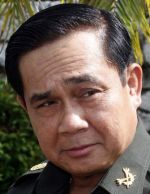 Prayut |
Prazeres, Zeferino (Vaz) dos (Santos) (b. Aug. 13, 1960), president of the Regional Government of Príncipe (2002-06).
Prazhevsky, Nikolay (Prokofyevich) (b. Oct. 25 [Oct. 14, O.S.], 1787 - d. Dec. 7 [Nov. 25, O.S.], 1849), governor of Bessarabia (1828-29).
Pré, Roland (Joanes Louis) (b. Dec. 26, 1907, Renazé, Mayenne, France - d. 1980), governor of Gabon (1946-47), French Guinea (1948-51), Upper Volta (1952-53), and French Somaliland (1954) and high commissioner of French Cameroons (1954-56).
Prebensen, Nicolai Christian Grove (b. April 13, 1850, Risør, Nedenes amt [now in Agder fylke], Norway - d. May 24, 1938, Hisøy [now part of Arendal municipality], Aust-Agder [now in Agder]), governor of Finmarkens amt (1889-94) and Nedenes amt (1896-1906). He was also Norwegian minister to Russia (1906-17).
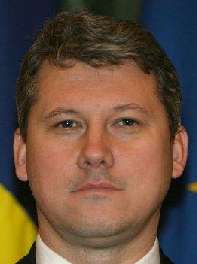 Predoiu |
Preissac, François Jean de (b. Dec. 22, 1778, Montauban [now in Tarn-et-Garonne département], France - d. May 6, 1852, Montauban), French administrator. He was prefect of the départements of Gers (1828-29) and Gironde (1830-33, 1836-38).
 Prem |
Premachandra, G(amlath) M(ohottige) (b. Sept. 24, 1940 - d. [assassinated] Oct. 24, 1994, Colombo, Sri Lanka), chief minister of North Western province (1993-94). He was also labour minister of Sri Lanka (1990-91).
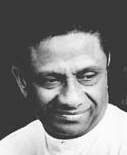 Premadasa |
Premajayantha, Susil (b. Jan. 10, 1955), chief minister of Western province (1995-98, 1999-2000) and home affairs minister of Sri Lanka (2018). He was also minister of education (2000-01, 2005-10), power and energy (2004-05), petroleum industries (2010-13), environment and renewable energy (2013-15), and science, technology, and research (2015-18).
Prendergast, Sir James (b. Dec. 10?, 1826, London, England - d. Feb. 27, 1921, Wellington, N.Z.), acting governor of New Zealand (1879, 1880, 1882-83, 1889, 1892, 1897); knighted 1881. He was chief justice (1875-99).
Prendergast y Gordon, Luis, marqués de Victoria de las Tunas (b. Dec. 12, 1824, Cádiz, Spain - d. Dec. 21, 1892, Madrid, Spain), governor of Cuba (1881-83). He was also captain-general of Catalonia (1879-80, 1881).
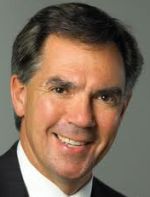 Prentice |
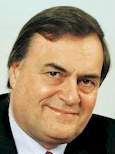 Prescott |
Presthus, Rolf (b. July 29, 1936, Oslo, Norway - d. Jan. 1, 1988, Oslo), finance minister (1981-86) and defense minister (1986) of Norway. He was also chairman of the Conservative Party (1986-88).
Preston, James P(atton) (b. June 21, 1774, Montgomery county, Va. - d. May 4, 1853, Montgomery county), governor of Virginia (1816-19).
Preston, William (b. Oct. 16, 1816, near Louisville, Ky. - d. Sept. 21, 1887, Louisville), U.S. diplomat; cousin of William B. Preston. He was minister to Spain (1859-61).
Preston, William B(allard) (b. Nov. 29, 1805, Smithfield plantation [now in Blacksburg], Va. - d. Nov. 16, 1862, Smithfield), U.S. secretary of the navy (1849-50); son of James P. Preston.
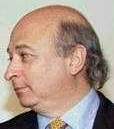 Pretelt |
Preti, Luigi (b. Oct. 23, 1914, Ferrara, Italy - d. Jan. 19, 2009, Bologna, Italy), finance minister of Italy (1958-59, 1966-68, 1970-72). He was also minister of foreign trade (1962-63), minister without portfolio (reform of public administration) (1963-66), and minister of budget (1968-69), transport and civil aviation (1973-74), transport (1974, 1979-80), and merchant marine (1979).
Preto, José Ramos (b. 1871, Louriçal do Campo, Portugal - d. Jan. 7, 1949, Louriçal do Campo), acting prime minister of Portugal (1920). He was also justice minister (1920) and acting interior minister (1920).
Preud'homme, André (b. 1915, Wasmes, Hainaut province, Belgium), resident of Rwanda (1958-59).
Preuss, Hugo (b. Oct. 28, 1860, Berlin, Prussia [Germany] - d. Oct. 9, 1925, Berlin), interior minister of Germany (1918-19).
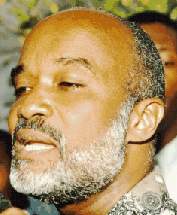 Préval |
Prevost, Sir George (b. May 19, 1767 - d. Jan. 5, 1816, London, England), governor of Saint Lucia (1798-1802), Dominica (1802-05), Nova Scotia (1808-11), and Lower Canada (1811-15). He was created a baronet on Dec. 6, 1805.
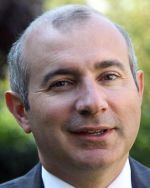 Prévost |
Prica, Milos (b. March 7, 1961, Chicago, Ill.), Bosnian diplomat. He was permanent representative to the United Nations (2005-08).
 Price |
Price-Mars, Jean (b. Oct. 15, 1876, Grande Rivière du Nord, Haiti - d. March 1, 1969, Pétionville, Haiti), foreign minister of Haiti (1946-47, 1956-57). He was also minister to France (1915-16) and ambassador to the Dominican Republic (1947-49) and France (1957-60). He was born Jean-Price Mars, receiving the second first name Price in the memory of the mulatto writer Hannibal Price. In 1904, he changed his name by connecting Price, the name of a mulatto, and Mars, the name of his black father. He regarded this gesture as a proclamation of his desire to see his compatriots living in peace and in solidarity. His son Louis Mars did not generally use the combined name.
Prickett, Sir Thomas (Other) (b. July 31, 1913, Lindfield, Sussex, England - d. Jan. 23, 2010, Malvern, Worcestershire, England), administrator of the British Sovereign Base Areas in Cyprus (1964-66); knighted 1965.
 Pridi |
Priedkalns, Janis (b. March 28, 1934, Barbele, Latvia - d. June 14, 2022, Adelaide, S.Aus.), Latvian diplomat. He was permanent representative to the United Nations (1997-2000).
Prieto (Vial), (José) Joaquín (b. Aug. 20, 1786, Concepción, Chile - d. Nov. 22, 1854, Santiago, Chile), president of Chile (1831-41). He was also intendant of Concepción (1831) and Valparaíso (1843).
Prieto (Fernández), Omar (José) (b. May 25, 1969, Sierra Maestra, San Francisco municipality, Zulia, Venezuela), governor of Zulia (2017-21).
Prieto Echaurren, Jorge, justice (and education) minister of Chile (1924); son of Alfredo Prieto Zenteno.
Prieto Gándara, Gonzalo (b. June 12, 1924, Valparaíso, Chile - d. 2008), justice minister of Chile (1973-74).
Prieto Hurtado, Joaquín (b. 1863, Santiago, Chile - d. Jan. 10, 1951, Viña del Mar, Chile), finance minister of Chile (1906).
Prieto Rojas, Justo Pastor (b. Oct. 15, 1897, Pilar, Paraguay - d. June 29, 1982, Asunción, Paraguay), foreign minister of Paraguay (1939-40). He was also minister of justice, worship, and education (1931, 1932-36) and president of the Senate (1939).
Prieto Tuero, Indalecio (b. April 30, 1883, Oviedo, Asturias, Spain - d. Feb. 12, 1962, Mexico City, Mexico), finance minister (1931) and defense minister (1937-38) of Spain. He was also minister of public works (1931-33) and navy and air (1936-37).
Prieto Zenteno, Alfredo (b. Dec. 16, 1846, Santiago, Chile - d. December 1930, Santiago), Chilean politician. He was governor of Lontué (1876-81) and intendant of Llanquihue (1882-87).
Prifti, Mihal (b. Sept. 25, 1918, Gjat, Gjirokastër district, Albania - d. March 16, 1986), Albanian politician. He was minister (1947-49) and ambassador (1954-58) to the Soviet Union, chairman of the People's Assembly (1951-54), and ambassador to China (1959-61).
Prikhodko, Sergey (Eduardovich) (b. Jan. 12, 1957, Moscow, Russian S.F.S.R. - d. Jan. 26, 2021, Moscow), a deputy prime minister of Russia (2013-18). He was also head of the Government Apparatus (2013-18).
 Primakov |
Primo de Rivera y Sobremonte, Rafael (b. July 12, 1813, Montevideo, Río de la Plata [now in Uruguay] - d. Feb. 3, 1902, Cádiz, Spain), governor of Puerto Rico (1873-74).
Primorac, Marko (b. Oct. 25, 1984, Zagreb, Croatia), finance minister of Croatia (2022- ).
Principe, Francesco (b. May 24, 1918, Rende, Calabria, Italy - d. Nov. 5, 2008, Cosenza, Calabria), president of Calabria (1985-87).
 Principi |
Prinetti, Giulio, (from 1903) marchese di Merate (b. June 6, 1851, Milan, Austria [now in Italy] - d. June 9, 1908, Rome, Italy), foreign minister of Italy (1901-03). He was also minister of public works (1896-97).
Pringle, Robert (b. 16... - d. Sept. 13, 1736, Rotterdam, United Netherlands), British secretary at war (1718).
Prinsen, Max, byname of Marinus Jacobus Prinsen (b. Jan. 10, 1899, Heerenveen, Friesland, Netherlands - d. Jan. 3, 1971, Haarlem, Noord-Holland, Netherlands), queen's commissioner of Noord-Holland (1954-64).
Printz, Johan Björnsson (b. July 20, 1592, Bottnaryd socken [now part of Jönköping municipality], Jönköping, Sweden - d. May 3, 1663, Bottnaryd socken), governor of New Sweden (1643-53).
Printzensköld, Carl (b. March 1, 1796, Sörbro, Värmland, Sweden - d. Dec. 10, 1866, Körunda, Stockholm county, Sweden), acting governor of Jämtland (1843-44).
Printzsköld, Otto Hack Roland (b. Oct. 18, 1846, Kalmar socken [now part of Håbo municipality], Uppsala, Sweden - d. March 1, 1930, Stockholm, Sweden), governor of Södermanland (1889-94).
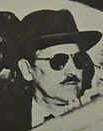 Prío |
Prishchepa, Mikhail (Mikhailovich) (b. 1906, Yurevka, Yekaterinoslav province, Russia [now in Ukraine] - d. ...), first secretary of the Communist Party committee of Gorno-Badakhshan autonomous oblast (1941-44).
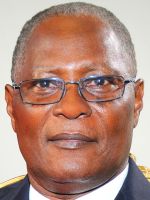 Privert |
Prka, Bozo (b. Jan. 1, 1958, Livno, Bosnia and Herzegovina), finance minister of Croatia (1994-97). He was also president of Privredna banka Zagreb (1998-2018).
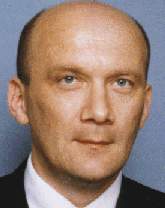 Prlic |
Prlja, Aleksandar (b. 1935 - d. Oct. 20, 2002, Belgrade, Serbia), foreign minister of Serbia (1989-91).
Procopé, Hjalmar (Johan Fredrik) (b. Aug. 8, 1889, Helsingfors [now Helsinki], Finland - d. March 8, 1954, Helsinki), foreign minister of Finland (1924-25, 1927-31). He was also minister of trade and industry (1920-21, 1924) and minister to Poland (1926-27) and the United States (1939-44).
Proctor, Fletcher D(utton) (b. Nov. 7, 1860, Proctor, Vt. - d. Sept. 27, 1911, Proctor), governor of Vermont (1906-08); son of Redfield Proctor (1831-1908).
Proctor, Mortimer R(obinson) (b. May 30, 1889, Proctor, Vt. - d. April 28, 1968, Proctor), governor of Vermont (1945-47); son of Fletcher D. Proctor.
Proctor, Redfield (b. June 1, 1831, Proctorsville, Vt. - d. March 4, 1908, Washington, D.C.), governor of Vermont (1878-80) and U.S. secretary of war (1889-91).
Proctor, Redfield (b. April 13, 1879, Proctor, Vt. - d. Feb. 5, 1957, Proctor), governor of Vermont (1923-25); son of the above; brother of Fletcher D. Proctor.
 Prodi |
Proença, João Uva de Matos (d. Jan. 29, 1990), Portuguese diplomat. He was chargé d'affaires in Malawi (1972-74), ambassador to Nigeria (1976-79), Czechoslovakia (1979-81), and Canada (1988-90), and permanent representative to the United Nations (1986-88).
 Profos |
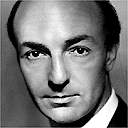 Profumo |
Prokes, Jozef (b. June 12, 1950, Nitra, Czechoslovakia [now in Slovakia]), a deputy prime minister of Slovakia (1993-94). He was also mayor of Nitra (1998-2002).
Prokhorov, Aleksandr (Dmitriyevich) (b. April 22, 1953, Kirovskoye, Sakhalin oblast, Russian S.F.S.R.), head of the administration of Smolensk oblast (1998-2002). He was also mayor of Smolensk (1997-98).
Prokhorov, Mikhail (Dmitriyevich) (b. May 3, 1965, Moscow, Russian S.F.S.R.), Russian politician. He was chairman of Right Cause (2011) and Civic Platform (2012-14) and a presidential candidate (2012).
Prokkonen, Pavel (Stepanovich) (Russian), Finnish Paavo Prokkonen (b. July 16 [July 3, O.S.], 1909, Klyushina Gora [now in Karelia], Russia - d. July 18, 1979, Petrozavodsk, Karelian A.S.S.R., Russian S.F.S.R.), chairman of the Council of People's Commissars/Ministers of the Karelo-Finnish S.S.R. (1940-47, 1950-56). He was also chairman of the Presidium of the Supreme Soviet of the Karelian A.S.S.R. (1956-79) and first deputy chairman of the Presidium of the Supreme Soviet of the Russian S.F.S.R. (1967-79).
Prokop, Liese, née Sykora (b. March 27, 1941, Vienna, Germany [now in Austria] - d. Dec. 31, 2006, en route between Annaberg and St. Pölten, Austria), interior minister of Austria (2004-06).
Prokopovic, Pavol (b. June 29, 1955, Stropkov, Czechoslovakia [now in Slovakia]), Slovak politician. He was minister of transportation, posts, and communication (2002-06) and a deputy prime minister and economy minister (acting, 2003).
Prokopovich, Sergey (Nikolayevich) (b. July 27 [July 15, O.S.], 1871, Tsarskoye Selo [now Pushkin, part of St. Petersburg], Russia - d. April 4, 1955, Geneva, Switzerland), Russian politician. He was minister of commerce and industry (1917) and food (1917).
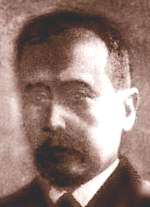 Prokopovych | 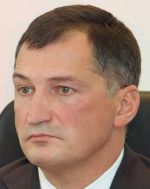 Prokudin |
Prokopyev, Ilya (Pavlovich) (b. July 29, 1926, Machamushi, Chuvash A.S.S.R., Russian S.F.S.R. - d. Feb. 20, 2017, Cheboksary, Chuvashia, Russia), first secretary of the Communist Party committee of the Chuvash A.S.S.R. (1974-88).
Prokopyev, Leonid (Prokopyevich) (b. April 7, 1934, Yanmurzino, Chuvash A.S.S.R., Russian S.F.S.R. - d. Jan. 9, 2006), chairman of the Council of Ministers of the Chuvash A.S.S.R. (1975-89). He was also first secretary of the party committee of Cheboksary city (1974-75).
Prokopyev, Yury (Nikolayevich) (b. July 14, 1932, Nyurba, Yakut A.S.S.R., Russian S.F.S.R. [now Sakha republic, Russia] - d. Dec. 21, 2003), first secretary of the Communist Party committee of the Yakut A.S.S.R. (1982-91). He was also first secretary of the party committee of Yakutsk city (1978-82).
Prokudin, Pavel (Nikolayevich) (b. Aug. 17, 1966, Smolenka, Novosibirsk oblast, Russian S.F.S.R.), prime minister of Transnistria (2015-16).
Prokuriça (Prokuriça), Baldo (Petar) (b. July 2, 1958, Vallenar, Chile), defense minister of Chile (2020-22). He was also governor of Huasco province (1988-90) and minister of mining (2018-20).
Pröll, Erwin (b. Dec. 24, 1946, Radlbrunn, Niederösterreich, Austria), Landeshauptmann of Niederösterreich (1992-2017).
Pröll, Josef (b. Sept. 14, 1968, Stockerau, Niederösterreich, Austria), chairman of the Austrian People's Party and vice-chancellor and finance minister of Austria (2008-11); nephew of Erwin Pröll.
Propriá, José da Trindade Prado, barão de (b. 1804, Santo Amaro de Brotas, Sergipe, Brazil - d. June 25, 1875, Várzea Grande engenho [now in Cabela municipality], Sergipe), acting president of Sergipe (1855, 1857, 1868, 1869, 1871-72). He was made baron in 1860.
Prosor, Ron (b. Oct. 11, 1958, Kfar Sava, Israel), Israeli diplomat. He has been ambassador to the United Kingdom (2007-11) and Germany (2022- ) and permanent representative to the United Nations (2011-15).
Protasov, Graf Nikolay (Aleksandrovich) (b. Jan. 7, 1799 [Dec. 27, 1798, O.S.], Moscow, Russia - d. Jan. 28 [Jan. 16, O.S.], 1855, St. Petersburg, Russia), Russian official; son-in-law of Knyaz Dmitry (Vladimirovich) Golitsyn. He was chief procurator of the Holy Synod (1836-55).
Protet, Auguste Léopold (b. April 20, 1808, Saint-Servan-sur-Mer [now part of Saint-Malo], Ille-et-Vilaine, France - d. [killed] May 17, 1862, Nankiao, near Shanghai, China), governor of Senegal (1850-54) and commandant of the Naval Division of the Western Coasts of Africa (1856-59).
Protic, Stojan (b. Jan. 16, 1857, Krusevac, Serbia - d. Oct. 28, 1923, Belgrade, Serbia), acting foreign minister of Serbia (1918) and Yugoslavia (1918) and prime minister of Yugoslavia (1918-19, 1920). He was also Serbian minister of interior (1903-05, 1906-07, 1910-11 [acting], 1912-14) and finance (1909-12, 1917-18).
Protodyakonov, Vasily (Andreyevich) (b. Nov. 14 [Nov. 1, O.S.], 1912, Khorinsky nasleg [village], Yakutsk oblast [now in Sakha republic], Russia - d. May 4, 1993), chairman of the Presidium of the Supreme Soviet (1947-48) and chairman of the Council of Ministers (1948-50, 1951-53) of the Yakut A.S.S.R. He was also people's commissar/minister of finance (1941-47).
Protopopov, Aleksandr (Dmitriyevich) (b. Dec. 30 [Dec. 18, O.S.], 1866, Maresevo, Nizhny Novgorod province, Russia - d. Oct. 27, 1918, Moscow, Russia), interior minister of Russia (1916-17). He was also a member of the State Duma (1907-17).
Protopopov, Dmitry (Zakharovich) (b. Oct. 4, 1897, Kostenki, Voronezh province, Russia - d. March 3, 1986, Moscow, Russian S.F.S.R.), first secretary of the Communist Party of the Tadzhik S.S.R. (1937-46).
Protyvsikh, Vasyl (Vasylyovych), original surname Humenyuk (b. Oct. 16, 1946, Oleshkov [Oleshkiv], Ivano-Frankovsk [Ivano-Frankivsk] oblast, Ukrainian S.S.R.), Ukrainian politician. He was a minor presidential candidate in 2010, ahead of which he changed his surname to Protyvsikh ("Against all") to "express the opinions of all those citizens that are against all candidates and the disorder that Ukraine currently finds itself in."
 Proust |
Prouteaux, Georges (David Pierre Marie), acting lieutenant governor of Oubangui-Chari (1926-28, 1929-30) and Chad (1932-33).
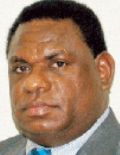 Pruaitch |
Prüm, Pierre (b. Aug. 9, 1886 - d. Feb. 1, 1950), prime minister and foreign minister of Luxembourg (1925-26). He was also minister of interior and agriculture (1925-26).
Prunskiene, Kazimiera (Danute) (sometimes spelled Kazimira), née Stankeviciute (b. Feb. 26, 1943, Vasiuliske village, Svencioniai region, Lithuania), prime minister of Lithuania (1990-91). She was also a presidential candidate (2004, 2009) and agriculture minister (2004-08).
Prusak, Mikhail (Mikhailovich) (b. Feb. 23, 1960), head of the administration of Novgorod oblast (1991-2007).
Prusakov, Mikhail (Dmitriyevich) (b. 1896, Lushno, Penza province, Russia - d. [executed] May 23, 1938), first secretary of the Communist Party committee of the Mordovian autonomous oblast/A.S.S.R. (1934-37). He was also first secretary of the party committee of Chelyabinsk city (1932-34).
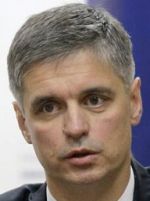 Prystaiko |
Prystor, Aleksander (Blazej) (b. Jan. 2, 1874, Vilna, Russia [now Vilnius, Lithuania] - d. October? 1941, Moscow, Russian S.F.S.R.?), prime minister of Poland (1931-33). He was also minister of labour and social welfare (1929-30) and industry and commerce (1930-31) and marshal of the Senate (1935-38).
Prytz, Lars Adolf, original surname (until 1799) Pryss (b. Jan. 30, 1792, Åbo [now Turku], Finland - d. March 28, 1863, Stockholm, Sweden), governor of Gävleborg (1853-61).
Psilander, Gustaf friherre von (b. Aug. 16, 1669, Stockholm, Sweden - d. March 18, 1738, Karlskrona, Blekinge, Sweden), governor of Gotland (1716-28) and Kalmar (1728-34). He became friherre (baron) in 1719.
Psilander, Peter friherre von (b. Sept. 20, 1702, Karlskrona, Blekinge, Sweden - d. March 11, 1776, Stockholm, Sweden), governor of Kronoberg (1758-63); son of Gustaf friherre von Psilander.
Psimhis, Jean-Louis (Guy) (b. July 7, 1936, Bangui, Oubangui-Chari [now Central African Republic] - d. 199...), foreign minister of the Central African Republic (1985-88). He was also ambassador to France (1967-70), Belgium (1970-71, 1980-85), and India (1976-78) and minister of territorial administration (1971-73), economic planning, international cooperation, and statistics (1973), education (1973-76, 1978-79, 1989-91), and posts and telecommunications (1988-89).
Pu Dianjun (b. 1875, Guangan, Sichuan, China - d. Oct. 28, 1934, Beijing, China), military governor of Sichuan (1911).
 Puapua |
Puaux, Gabriel (b. May 19, 1883, Paris, France - d. Jan. 1, 1970, Austria), French high commissioner of Syria and Lebanon (1939-40) and resident-general of Morocco (1943-46). He was also French minister to Lithuania (1926-28), Romania (1928-33), and Austria (1933-38) and ambassador to Sweden (1947-48).
Puccinelli, André (b. July 2, 1948, Viareggio, Toscana, Italy), governor of Mato Grosso do Sul (2007-15). He was also mayor of Campo Grande (1997-2005).
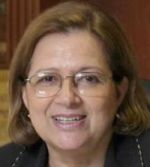 Pucheta | 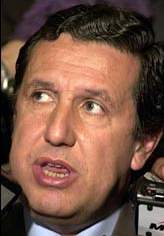 Puerta |
Pucheu, Pierre (Firmin) (b. June 27, 1899, Beaumont-sur-Oise, Seine-et-Oise [now in Val-d'Oise], France - d. [executed] March 20, 1944, Algiers, Algeria), interior minister of France (1941-42). He was also minister of industrial production (1941).
Puente (Cortés), José Agustín (Felipe Ceferino) de la (b. 1835, Lima, Peru - d. Jan. 18, 1910, Lima), finance minister of Peru (1894).
Puente, José Manuel de la, foreign minister (1865) and finance minister (1865) of Peru.
Puente (Quiñones), José María de la (b. 1850?, Trujillo, Peru - d. Sept. 12, 1912, Lima, Peru), interior minister of Peru (1896, 1897-99). He was also prefect of La Libertad (1895-98).
Puente Ganoza, Ricardo de la (b. June 16, 1900, Trujillo, Peru - d. March 18, 1952, Lima, Peru), interior minister of Peru (1942-45, 1950-52); son of José María de la Puente.
Puente Radbill, José (Carlos) de la (b. 1921, Lima, Peru - d. 2017), foreign minister of Peru (1976-79). He was also ambassador to the Soviet Union and Poland (1971-73).
Puente Raygada, Óscar (Francisco Reynaldo) de la (b. Oct. 4, 1938, Lima, Peru), prime minister (1992-93) and foreign minister (1992-93) of Peru. He was also minister of education (1990-91) and housing, construction, and sanitation (1991-92).
Puente y Lavalle, Gonzalo de la (b. July 20, 1923, Lima, Peru - d. Oct. 22, 2019, Lima), Peruvian politician; great-grandson of José Antonio de Lavalle (y Arias de Saavedra) and José Antonio García y García; great-great-grandson of Felipe Pardo y Aliaga. He was minister of industry, tourism, and integration (1982-83).
Puerta (Galarza), (Federico) Ramón (b. Sept. 9, 1951, Apóstoles, Misiones, Argentina), governor of Misiones (1991-99) and acting president of Argentina (2001). He was also ambassador to Spain (2016-19).
Pueyrredón (Carneiro da Fontoura), Honorio J. (b. July 9, 1872, San Pedro, Buenos Aires province, Argentina - d. Sept. 23, 1945, Buenos Aires, Argentina), foreign minister of Argentina (1917-22). He was also agriculture minister (1916-18) and ambassador to the United States (1924-28).
Puga Borne, Federico (b. Oct. 31, 1855, Chillán, Chile - d. Aug. 13, 1935), foreign minister of Chile (1899, 1905-06, 1907-08). He was also minister of justice and education (1888, 1889, 1896-97) and interior (1920) and minister to France (1909-16).
Puga Fisher, Eugenio (María Ruperto) (b. Aug. 24, 1894, Valparaíso, Chile - d. 1962, Santiago, Chile), justice minister of Chile (1944-45, 1946, 1947-48, 1950); nephew of Federico Puga Borne.
Puga Fisher, Ruperto (b. Oct. 18, 1902, Santiago, Chile - d. Oct. 17, 1975, Santiago), justice minister of Chile (1950); brother of Eugenio Puga Fisher; nephew of Federico Puga Borne. He was also minister of labour (1948-49, 1950).
Puga Monsalve, (Luis) Raúl (b. Dec. 5, 1891, Arauco, Chile - d. May 6, 1965, Concepción, Chile), justice minister of Chile (1938-41). He was also minister of agriculture (1941-42) and labour (acting, 1942).
Puga Osorio, Arturo (b. 1879, Santiago, Chile - d. 19...), interior minister (1932), junta chairman (1932), and defense minister (1932) of Chile.
Pugachov, Yemelyan (Ivanovich) (b. c. 1742, Zimoveyskaya-na-Donu, Russia - d. Jan. 21 [Jan. 10, O.S.], 1775, Moscow, Russia), Russian rebel leader. In 1773 he claimed to be the "surviving" emperor Pyotr III; he captured or besieged several cities before being defeated in 1774 and ultimately executed.
 Pugh |
Pugliese, Juan Carlos (b. Feb. 17, 1915, Tandil, Buenos Aires province, Argentina - d. Jan. 17, 1994, Tandil), finance minister (1964-66) and economy minister (1989) of Argentina. He was also president of the Chamber of Deputies (1983-89).
Pugo, Boris (Karlovich), Latvian Boriss Pugo (b. Feb. 19, 1937, Kalinin [now Tver], Russian S.F.S.R. - d. Aug. 22, 1991, Moscow, Russian S.F.S.R.), first secretary of the Communist Party of the Latvian S.S.R. (1984-88) and Soviet interior minister (1990-91). He was also first secretary of the party committee of Riga city (1975-76), director of the KGB of the Latvian S.S.R. (1980-84), and chairman of the CPSU Control Commission (1988-90). He committed suicide after having taken part in the failed coup against Pres. Mikhail Gorbachev.
Puhakka, Yrjö (Wilhelm) (b. Sept. 5, 1888, Juuka, Finland - d. Feb. 28, 1971, Helsinki, Finland), interior minister (1932-37) and justice minister (1954) of Finland.
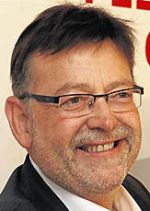 X. Puig |
Puig Casauranc, José Manuel (b. Jan. 31, 1888, Laguna del Carmen, Campeche, Mexico - d. May 9, 1939, Havana, Cuba), chief of government of the Distrito Federal (1929-30) and foreign minister of Mexico (1933-34). He was also minister of education (1924-28, 1930-31) and industry, commerce, and labour (1928) and ambassador to the United States (1931-33), Argentina (1935-36), and Brazil (1936-37).
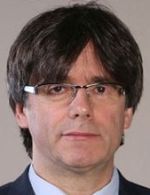 Puigdemont |
Puirredón, Ismael, justice and education minister of Peru (1892-93).
Puisieulx, Louis Philogène Brûlart, vicomte de, marquis de Sillery (b. May 12, 1702 - d. Dec. 8, 1770, Paris, France), foreign minister of France (1747-51). He was also ambassador to Naples (1735-39).
Puja, Frigyes (b. Feb. 2, 1921, Battonya, Békés county, Hungary - d. July 5, 2008), foreign minister of Hungary (1973-83). He was also ambassador to Sweden (1953-55) and Austria (1955-59).
Pujol, Luiz Carlos Victor (b. March 10, 1909, Belém, Pará, Brazil - d. Aug. 7, 1981, Brasília, Brazil), acting prefect of Distrito Federal (1964).
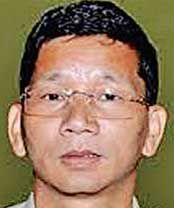 Pul |
Pula, Imer (b. 1921 - d. January 2010), chairman of the Executive Council of Kosovo (1982-84).
Pulecio, Gerardo (b. 18... - d. Oct. 2?, 1930, Bogotá, Colombia), interior minister of Colombia (1905-06).
Pulido (Cardier), Gustavo (Adolfo) (b. Oct. 10, 1973, Barquisimeto, Lara, Venezuela), governor of Carabobo (2017).
Pulikovsky, Konstantin (Borisovich) (b. Feb. 9, 1948), plenipotentiary of the president in Dalnevostochny federal district (2000-05).
Pulkkinen, Yrjö (Rafael) (b. April 3, 1875, Parkano, Finland - d. Feb. 4, 1945, Helsinki, Finland), finance minister of Finland (1924-25). He was also minister of trade and industry (1925).
Pumarejo (Vengoechea), Alberto (Mario) (b. May 2, 1893, Barranquilla, Colombia - d. Aug. 14, 1970, Barranquilla), war minister of Colombia (1934, 1937-38). He was also governor of Atlántico (1930-31), minister of posts and telegraphs (1931-34), minister to Venezuela (1938-41), and mayor of Barranquilla (1966).
Pun, Barsha Man, byname Ananta, finance minister of Nepal (2011-13). He was also minister of peace and reconstruction (2011) and energy, water resources, and irrigation (2018-20).
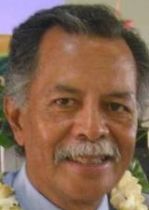 Puna |
 Pundari |
Pung, Mihkel (b. Oct. 19, 1876, Vana-Põltsamaa municipality, Russia [now in Estonia] - d. Oct. 11, 1941, Sosva camp, Sverdlovsk oblast, Russian S.F.S.R.), foreign minister of Estonia (1932). He was also minister of economy (1931) and chairman of the Riiginõukogu (1938-40).
Punga, Hermanis (b. April 16, 1877, Libava, Courland, Russia [now Liepaja, Latvia] - d. April 12, 1941, Riga, Latvian S.S.R.), finance minister of Latvia (1923-24).
Puntsagnorov, Tsevegzhavyn (b. Aug. 11, 1924, Ulaanbaatar, Mongolia), Mongolian politician. He was culture minister (1971-72) and permanent representative to the United Nations (1972-78).
Pupier, Henri, byname of Claude Jean Pupier (b. 1860 - d. ...), French resident of Grande Comore (1888-89).
Pupp, Alois (b. Jan. 11, 1902, St. Leonhard im Passeiertal, Austria [now San Leonardo in Passiria, Trentino-Alto Adige, Italy] - d. Feb. 10, 1979, Bressanone, Trentino-Alto Adige), president of Bolzano-Alto Adige (1956-60).
 B. Purcell |
 Pürevsüren |
Puri, Hardeep Singh (b. Feb. 15, 1952, Delhi, India), Indian politician. He has been ambassador to Brazil (2006-08), permanent representative to the United Nations (2009-13), minister of state (independent charge) for housing and urban affairs (2017- ) and civil aviation (2019-21), and minister of petroleum and natural gas (2021- ).
Puric, Bozidar (b. Feb. 19, 1891, Belgrade, Serbia - d. Oct. 28, 1977, Chicago, Ill.), prime minister and foreign minister of Yugoslavia in exile (1943-44). He was also minister to France (1935-40).
Puricelli, Arturo (Antonio) (b. 1948), governor of Santa Cruz (1983-87) and defense minister (2010-13) and security minister (2013) of Argentina.
Purickis, Juozas (b. April 19, 1883, Kietaviskis, Russia [now in Lithuania] - d. Oct. 25, 1934, Kaunas, Lithuania), foreign minister of Lithuania (1920-21). He was also minister to Germany (1919-20).
Purins, Karlis (Aleksandrs) (b. Oct. 5, 1883, Smiltene parish, Russia [now part of Smiltene municipality, Latvia] - d. June 25, 1947, Greven, Nordrhein-Westfalen, Germany), finance minister of Latvia (1918-19, 1920-21).
Purnama, Basuki Tjahaja, byname Ahok (b. June 29, 1966, Manggar, Sumatera Selatan [now in Bangka-Belitung], Indonesia), governor of Jakarta (2014-17). In 2007 he was an unsuccessful candidate for governor of Bangka-Belitung. In 2011 he was elected deputy governor of Jakarta, alongside Joko Widodo as governor. When the latter became president of Indonesia in 2014, Purnama, a Christian, succeeded him to become the capital's first non-Muslim governor since Henk Ngantung (1964-65) and the first ethnic Chinese in the post. He then hoped to become its first directly elected non-Muslim leader in 2017 but things began to go in another direction in September 2016 when, trying to address attacks from Muslim hardliners who argued that the Qur´an prohibited Muslims from voting for a non-Muslim, he said those who made that argument were misleading Muslims, a statement that was interpreted by some as insulting the Qur´an. Conservative Muslim groups organized several massive rallies against him in November-December, demanding that he be jailed for blasphemy, and charges were brought. He lost the 2017 election in the April runoff and in May, while still in office, was found guilty of blasphemy and sentenced to two years in prison. He was not eligible to remain free during appeal and was immediately taken to prison. He subsequently resigned.
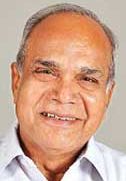 Purohit | 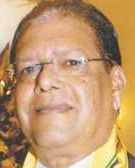 Purryag |
Purryag, Rajkeswur, byname Kailash Purryag (b. Dec. 12, 1947, Camp Fouquereaux, Mauritius), foreign minister (1997-2000) and president (2012-15) of Mauritius. He was also minister of social security (1980-82), health (1984-86), and economic planning, information, and telecommunications (1995-97) and speaker of the National Assembly (2005-12).
Pursoo, Eugene M. (b. March 26, 1946, Soubise, St. Andrew, Grenada), Grenadian diplomat. He was permanent representative to the United Nations (1990-95).
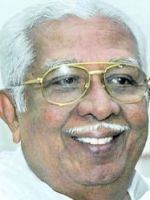 Purushothaman | 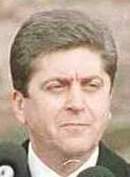 Purvanov |
Purvanov, Georgi (Sedefchov) (b. June 28, 1957, Sirishtnik, Pernik region, Bulgaria), president of Bulgaria (2002-12).
Purwaka, Setia (b. Feb. 28, 1950, Kediri, Jawa Timur, Indonesia), acting governor of Jawa Timur (2008-09).
Puscuta, Sergiu (b. Sept. 4, 1972, Lipcani, Moldavian S.S.R.), finance minister and a deputy prime minister of Moldova (2019-20).
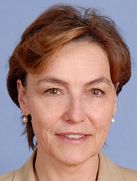 Pusic |
Pusta, Kaarel Robert (b. March 1, 1883, Narva, Russia [now in Estonia] - d. May 4, 1964, Madrid, Spain), foreign minister of Estonia (1920, 1924-25). He was also minister to France (1918-32), chargé d'affaires (1921-23) and minister (1923-32) to Belgium, minister to Italy (1921-23), Spain (1928-32), Poland, Czechoslovakia, and Romania (1932-34), and Sweden, Denmark, and Norway (1935).
 Pustovoitenko |
Puteh, Abdullah (b. July 4, 1948, Meunasah Arun, Aceh, Netherlands East Indies [now Indonesia]), governor of Aceh (2000-05). Accused of corruption, he was arrested in Jakarta on Dec. 7, 2004, and suspended on December 26 for the duration of his trial. He was the first person to be brought to trial at Indonesia's new Anti-Corruption Court. In April 2005 he was sentenced to 10 years in prison.
 Putin |
Putnam, (George) Herbert (b. Sept. 20, 1861, New York City - d. Aug. 14, 1955, Woods Hole, Mass.), U.S. librarian. He was librarian of Congress (1899-1939).
Putnin, Vladimir (Markovich), Latvian Voldemars Putnins (b. Feb. 6, 1896, Venden, Livonia, Russia [now Cesis, Latvia] - d. [executed] June 19, 1938, Rostov-na-Donu, Russian S.F.S.R.), first secretary of the Communist Party committee of the Mordovian A.S.S.R. (1937). He was also executive secretary of the party committees of Penza (1921) and Stalingrad (1925-27) provinces and first secretary of the party committee of Rostov-na-Donu city (1932).
 Putra |
Putyatin, Graf Yevfimy (Vasilyevich) (b. Nov. 20 [Nov. 8, O.S.], 1804, St. Petersburg, Russia - d. Oct. 28, 1883, Paris, France), education minister of Russia (1861-62). He was also envoy to China (1857-58). He was made Graf (count) in 1855 and admiral in 1858.
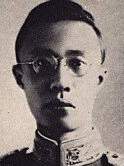 Puyi |
 Puzak |
Puzanov, Aleksandr (Mikhailovich) (b. Oct. 25 [Oct. 12, O.S.], 1906 - d. March 1, 1998, Moscow, Russia), chairman of the Council of Ministers of the Russian S.F.S.R. (1952-56). He was also chairman of the Executive Committee (1944-46) and first secretary of the party committee (1946-52) of Kuybyshev oblast and Soviet first deputy prime minister (1956-57) and ambassador to North Korea (1957-62), Yugoslavia (1962-67), Bulgaria (1967-72), and Afghanistan (1972-79).
Pyatachenko, Hryhoriy (Oleksandrovych) (b. March 22, 1932, Velikaya Step, Vinnitsa oblast, Ukrainian S.S.R. [now Velykyi Step, Vinnytsya oblast, Ukraine]), finance minister of Ukraine (1991-94).
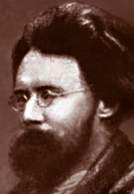 Pyatakov |
Pyka, Tadeusz (Hiacynt) (b. May 17, 1930, Piekary Wielkie [now Piekary Slaskie], Poland - d. May 23, 2009), a deputy premier of Poland (1975-80). He was also first secretary of the party committee of Bytom city (1964-67).
Pyle, Nick, byname of Nicholas John Pyle (b. Dec. 9, 1960), acting governor of Gibraltar (2020). He was British high commissioner to Botswana (2013-16) and deputy governor of Gibraltar (2016-22).
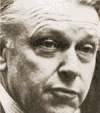 Pym |
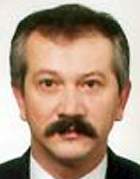 Pynzenyk |
Pyotr, secular name Fyodor (Alekseyevich) Yekaterinovsky (b. 1820, Saratov province, Russia - d. May 27, 1889, Moscow, Russia), Russian Orthodox bishop of Novo-Arkhangelsk (1859-66), Yakutsk (1866-67), Ufa (1869-76), and Tomsk (1876-83).
Pyotr, secular name Pyotr (Fyodorovich) Polyansky (b. July 10 [June 28, O.S.], 1862, Storozhevoye, Voronezh province, Russia - d. [executed] Oct. 10, 1937), Locum Tenens of Moscow and All Russia (1925-37). He was bishop (1920-23) and archbishop (1923-24) of Podolsk and archbishop (1924) and metropolitan (1924-37) of Krutitsy. He was canonized in 1997.